- Spouse Visa
- Fiance Visa
- Unmarried Partner Visa
- Dependant Visa
- Child Dependant Visa
- Adult Dependent Relative Visa
- UK Ancestry Visa
- Skilled Worker Visa
- Scale-up Visa
- Global Talent Visa
- High Potential Individual Visa
- Health and Care Worker Visa
- Sports Person Visa
- Minister of Religion Visa
- Temporary Work Visa
- Youth Mobility Scheme Visa
- Innovator Founder Visa
- Start-up Visa
- Sponsor Licence
- Immigration Compliance and Audits
- Entrepreneur Visa Extension
- Investor Visa Extension
- Indefinite Leave to Remain (ILR)
- British Naturalisation
- EUSS Family Permit
- British Citizenship By Marriage
- British Citizenship By Birth
- British Citizenship By Decent
- British Citizenship For Child Born Abroad
- Administrative Review
- Judicial Review
- Blog & News


UK Family Visitor Visa Requirements and Application

By Amar Ali, Immigration Solicitor
The UK family visitor visa is the same as the standard visitor visa and enables overseas nationals to visit family members in the UK for up to 6 months. For example, if you have overseas parents, they may be able to apply for a family visitor visa allowing them to visit you in the UK. It is possible to apply for a family visitor / standard visitor visa up to 3 months before you travel to the UK.
If you plan to make several frequent visits to the UK to visit your family, consider applying for a long-term standard visitor visa. Long-term standard visitor visas are granted for either 2, 5, or 10 years. Holders can enter and stay in the UK as many times as they wish during the period of their visa, but only for up to 6 months at a time.
It is important to note that you cannot get married on a family visitor visa UK. If you intend to get married in the UK during your stay, you will need to consider a different type of visa, such as a marriage visitor visa (if you don’t intend to live in the UK once married) or a fiancé visa (if you plan to live in the UK once married).
If you hold a current UK visa, such as a work visa , study visa, or business visa and want to bring your spouse or children to the UK for longer than 6 months, they may be eligible for a dependant visa. With a dependant visa , your spouse/partner and/or children will be able to stay in the UK as long as your visa remains valid.
A final point to bear in mind is that not everyone requires a visitor visa to come to the UK. For this reason, it is advisable to check if you need a visitor visa 1 on the Home Office website before you apply.
UK family visit visa requirements
To qualify for a UK family visitor visa, you must meet the following family visitor visa UK requirements:
- Hold a valid passport which will be valid for the total duration of your stay in the UK.
- Have evidence that you genuinely intend to depart the UK at the end of your visit.
- Have sufficient funds to support yourself and your dependants during your time in the UK.
- Be able to pay for your return or onward journey.
- You must not intend to live in the UK or make the UK your main home by making frequent or successive visits.
If you do not have the necessary funds to support yourself and your dependants while in the UK or to cover the cost of your onward journey, you can ask your UK-based family member to cover your costs.
UK family visitor visa required documents
As part of the application process for a UK visa family visitor visa, the Home Office will ask you to provide certain information and documents. The UK family visitor visa documents required may include:
- Contact details of your employer
- Contact details of your family members in the UK
- Details of any criminal, civil or immigration offences
- Details of family members who are covering the costs of your trip and onward journey
- Details of your parents (i.e. name and dates of birth)
- Details of your planned travel to the UK (i.e. when you intend to arrive and leave)
- Estimate of your costs while in the UK
- Proof of sufficient funds to support yourself and your dependants (i.e. bank statements)
- TB test certificate, if required
- Travel history for the past 10 years
- Where you will stay during your visit
- Your annual income
- Your home address and duration of residence
- Your onward / return travel ticket
- Your partner’s details (i.e. name, date of birth and passport number)
Family visitor visa sponsor requirements
If you are being sponsored by another person to come to the UK, you may be asked to provide evidence of:
- the support they are providing (i.e. accommodation, support funds, and funds for your onward journey)
- how this support is being provided (i.e. bank statement showing savings or details of the accommodation being provided)
- the relationship between you and your sponsor (i.e. family member)
- your sponsor’s British passport or residence document
How to apply for a UK family visitor visa
To apply for a UK family visitor visa, you need to complete the following steps:
- Complete and submit the online application form 2
- Pay the application fee (see below)
- Book and attend an appointment at your nearest UK visa application centre (VAC) to provide your biometrics (fingerprint scan and photo)
- Upload any documents requested by the Home Office
In most cases, UK family visitor visas are processed within 3 weeks. You may be able to request a faster decision – the priority service costs £500 and provides a decision within 5 working days, and the super-priority service costs £800 and provides a decision within 1 working day.
Application fees for UK family visitor visa
Extending your uk family visitor visa.
You may be able to extend your family visitor visa if you have permission to be in the UK for less than 6 months and you want to extend your stay up to the maximum of 6 months, e.g. if you have been in the UK for 2 months, you can extend your stay for 4 more months, but for no longer than 6 months in total.
You can only extend a visitor visa if you are an academic, or you are a graduate retaking the Professional and Linguistic Assessment Board (PLAB) test or doing a clinical attachment.
It is also possible to extend your visit under medical reasons. See our guide on the UK medical visit visa for more information.
How can Reiss Edwards help?
Reiss Edwards is a specialist in family immigration based in Central London. Our team of family immigration solicitors can handle all aspects of your family visitor visa and can help you with:
- Preparing and handling all aspects of your family visitor visa UK
- Overcoming any issues with your UK family visitor visa application including a UK visa refusal
- Applying for a UK family visa
- Explaining any other UK immigration options available to you
1 GOV.UK: Check if you need a UK visa
2 GOV.UK: Application form
Get In Touch

Reiss Edwards Awards

This was my first time using Reiss Edwards and I had a great experience with them, our solicitor was Zarish Aslam. Zarish was very attentive, organised, and a good communicator. Overall I am very happy with their service and wholeheartedly recommend their services.
Mohamed Mansour
"Reiss Edwards provides professional services. The team is a world-class team with great experience.
Ms Zarish is one of the best consultants at Reiss Edwards who has great knowledge and extensive experience.
Totally recommended!"
Simon Daniels
Absolutely amazing!! We were told our application wasn't possible with numerous other immigration attorneys. Thank you to Ben Inigo-Jones and Kader Gulbahce for all their support with our children's application for citizenship. You made the impossible, possible. We received their citizenship in under 3 months and couldn't be happier. Thank you from the Daniels Family
Simran Luthra
Amazing service from Baris, very informative and polite! 10/10
Reiss Edwards Reviews
This was my first time using Reiss Edwards and I had a great experience with the...
Reiss Edwards provides professional services. The team is a world-class team wit...
Absolutely amazing!! We were told our application wasn't possible with numerous ...
This website uses cookies to ensure you get the best experience on our website. Learn more about our privacy policy
Getting a visitor visa for family and friends
This advice applies to England. See advice for See advice for Northern Ireland , See advice for Scotland , See advice for Wales
Your friend or family member can apply for a visitor visa so they can visit you in the UK. Visitor visas are usually for up to 6 months.
Bringing your partner to the UK to get married or register a civil partnership
Your partner can’t use a standard visitor visa to come to the UK to get married or register a civil partnership.
If you and your partner want to live in the UK after you get married or register a civil partnership, check if they can apply for a partner visa .
If you and your partner don’t want to stay in the UK together, your partner can come to the UK on a marriage visitor visa. This means they’ll have to leave the UK within 6 months. Check how to get a marriage visitor visa on GOV.UK .
Check if your visitor needs a visa
You’ll need to check if they need a visitor visa on GOV.UK if you don’t already know - it depends on their nationality.
If your visitor doesn't need a visa, they might need to get an electronic travel authorisation (ETA) before they travel to the UK. You can check if your visitor needs an ETA on GOV.UK .
Some visitors can scan their own passport at an ‘eGate’ instead of speaking to an immigration officer. Check who can use the eGates on GOV.UK .
If they can't use an eGate, they should still be prepared to explain why they’re visiting when they get to the border. If the Border Force thinks they might try to stay longer, they can refuse them entry
If you’re helping your visitor apply for a visitor visa
They’ll have to apply online .
Make sure your visitor puts their information in where it asks for the applicant’s details .
After you fill in the form, the visitor will need to have their fingerprints and photograph taken at a visa application centre. Check where their nearest visa application centre is before you apply, because it might be in a different country.
The online form asks you some questions to get to the visa you need.
If you need more support with your application
You should consider getting specialist advice if you’re unsure about the application. It might cost you money but it can save you time and hassle. Your local Citizens Advice can either help you or let you know where to get expert advice.
Documents you’ll need to include
You’ll need to include documents that support their application when you send it off. The online form will give you guidance on what to include, but here are some things to keep in mind.
If your documents aren’t in English or Welsh, you’ll need to provide certified English translations of your documents with the originals. Each translation has to include:
confirmation from the translator that it’s an accurate translation of the original
the date of the translation
the translator's full name and signature
the translator's contact details
Prove they’ll be returning to their country after their visit
You could show proof your visitor has a job or studies to go back to in their home country. You can also show they have family who depend on them in their home country.
Prove there’s enough money for the trip
You’ll have to provide evidence to show that the visitor’s trip can be afforded, whether it’s being paid for by them or by you.
If the visitor is paying for themselves, they’ll have to include documents proving that they can afford it, for example bank statements or payslips.
If you’re paying for their visit (eg for their flights and accommodation), you’ll need to prove that you can afford the visitor’s trip as well as your own costs - for example your rent, mortgage and general expenses.
an estimate of how much the trip will cost - this needs to be as accurate as possible
proof of your income and where you work, for example payslips or an employment contract
proof that you have enough money to pay for the visitor’s stay, for example recent bank statements
proof that you’re in the UK legally, for example a copy of your passport or visa
Prove you have a genuine relationship
You’ll have to show how you’re connected to the person visiting you.
If the person visiting you is a friend, boyfriend or girlfriend, you might need to give stronger proof they’ll be returning to their country after their visit.
If your visa is refused
You can read the government’s guidance on reasons for refusing visas on GOV.UK, if you're concerned the visa you're applying for might be refused.
You can’t usually appeal if the visitor visa is refused. It's quicker and easier to apply again. Make sure you deal with the reasons your first application was refused.
Help us improve our website
Take 3 minutes to tell us if you found what you needed on our website. Your feedback will help us give millions of people the information they need.
Page last reviewed on 13 May 2019

- Terms and Conditions
- Privacy Policy
- Cookie policy
- Cancellation and Refund Policy
Family Visit Visa
Call us on 0333 305 9375 for immediate help & assistance with your situation Family Visit Visa. We’re here to help you in person, via the phone or online.
Request a call back from our immigration experts
- Our Services
- Content /Overview
- Related Pages
Benefits of Choosing IAS For Your Visitor Visa Application
If you are planning to travel to the UK and require a visitor visa, then our immigration lawyers are on hand to provide advice and application assistance.
Whether this is your first application or you applied on your own before but were refused the visa, we can help.
No matter the reason why you plan to visit, the IAS range of expert services can help ensure your application is submitted quickly and to a high standard. Benefit from:
Tailored advice to ensure you are applying for the correct visa.
A personal immigration lawyer who can answer all queries.
Access to UK-specific knowledge of the immigration routes.
Confidence your application will be complete and comprehensive.
Services we Provide
Need help with an immigration issue? Book a one-to-one advice session with one of our legal caseworkers.
We can complete your visa application on your behalf, taking the stress and hassle out of the process.
Need to submit an application quickly? We can help you complete and send it off in as little as 24 hours.
Ensure you have the greatest chance of a successful appeal with our legal support and guidance.
If you are a non-EEA national and you want to travel to the UK to visit family, you will need a Standard Visitor Visa under the Family Visit Visa category. This visa is valid for up to six months.
Family Visas under the Standard Visitor Visa category have very strict requirements and are therefore difficult to obtain. You will need to prove that you have a reason to return home once your six months is up. You will also need to show you can fund your stay.
The Family Visit Visa does not allow you to work, claim public funds or bring dependents on this visa type. This means that each family member will have to make a separate Family Visit Visa application.
How can IAS help?
Our team of highly-qualified lawyers can assist you with your application for a Family Visit Visa. One of our lawyers will work with you to assess your eligibility and complete your Family Visit Visa application to the highest standard.
Your lawyer will also perform a full document check and prepare a Letter of Representation to support your application. This letter will detail your case and its merits and reference any relevant UK immigration laws in support of your application. Contact us using our online enquiry form or by calling 0333 363 8577 to arrange your first meeting with an immigration lawyer today. We have offices based in London , Manchester , and Birmingham , as well as in many other locations throughout the UK.

We offer immigration advice sessions as face to face appointments at all of our UK offices, or via the phone.
Frequently Asked Questions
How do i apply for a family visit visa.
The requirements to apply are the same as those for the Standard Visitor Visa.
To be eligible, you must:
- be at least 18 years old (unless applying under the Child Visitor Visa category)
- have intentions to leave the UK after your visit the UK;
- be able to show evidence of your financial support once in the
- UK (this can be from your family member); and
- have enough funds to pay for your journey to the UK.
What documents are required for a UK Family Visit Visa?
As the Family Visit Visa is part of the Standard Visitor Visa route, you will need to provide evidence of your reason for travelling and where you will be staying. You will also need to show that you can afford to travel to and from the UK.
Visitor Visas also require clear evidence that you will return to your home country after your visa has expired. You will need to provide documents that show you have commitments back home that you must return to.
The Family Visit Visa will also require evidence of your family relationship before you can enter the country.
Who can make a Family Visa application as a visitor?
Family members can include:
- siblings (including half siblings and step siblings);
- grandparents; and
- grandchildren.
As of July 2012, uncles, aunts, nephews, nieces, and cousins have been excluded from the definitions of the family members allowed Entry Clearance through the Family Visitor Visa.
They can still apply for a normal Visitor Visa, however, they will not be able to appeal against a refusal.
How do I appeal if my Family Visit Visa application is refused?
You may be able to appeal a decision to refuse Entry Clearance if you are visiting a close family member. An immigration officer will say which members of the family qualify for this appeal.
We recommend that you apply for Entry Clearance in your country of residence before travelling to the UK.
At IAS, our team of expert advisers can help assist and support you through each stage of your visa application process.
Our services include:
- checking your documents to ensure that they are sufficient for your application;
- preparing a Letter of Representation to accompany your application. This letter details your case and its merits as well as referencing any relevant UK immigration laws in support of your application;
- liaising with the Home Office during your application process;
- completing each part of your application form to the highest standard.
Contact us on +44 (0)333 414 9244 or make an enquiry online to speak to one of our immigration lawyers.

What our clients are saying
We are the UK’s leading immigration specialists
OISC Accredited UK Immigration lawyers
We’ve had over 9000 applications approved
We are now open 7 days a week from 8.30am to 6pm.
How our UK Immigration Lawyers can help
At the Immigration Advice Service our lawyers specialise in a wide range of UK visas, nationality and asylum applications and have represented clients in various successful complex and high-profile cases.
Get in Touch
Immigration Advice Service Ashwood House, Ellen Street Oldham, OL9 6QR
We have over 20 offices across the UK, find a branch near you:
Related pages for your continued reading

Sponsor Licence
Businesses looking to sponsor foreign employees to work in the UK must obtain a sponsor licence. Get in touch with us now for support.

UK Work Visas
Are you an employer looking to obtain a visa for your employee? Or are you looking for a UK work visa for yourself? Click here.
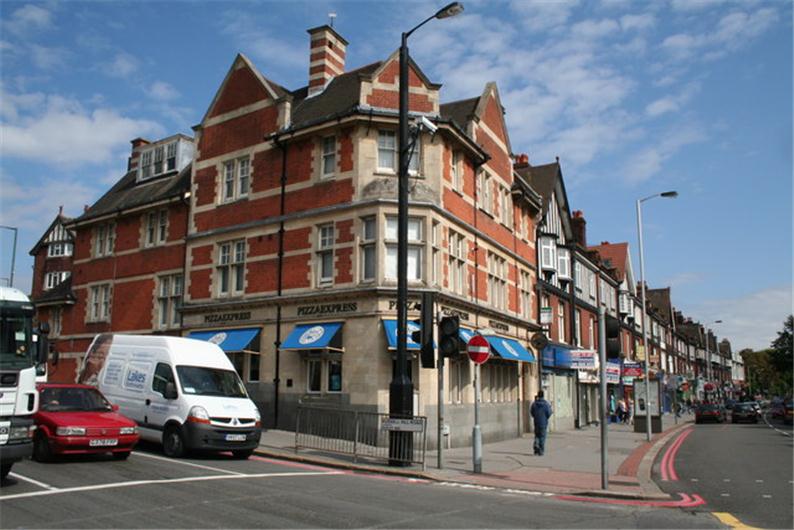
There are several UK visas. Each one has its unique requirements and documents. Learn about your options here.

Indefinite Leave to Remain
Get in touch with us for expert, success-oriented assistance for indefinite leave to remain, long residence and settlement in the UK.

UK Partner Visa
Obtaining a partner visa can be nerve racking. You want to get it right the first time and we want that for you as well. Get in touch with us for a personalised spouse/partner visa application service.

UK Visa Appeal
Was your UK visa refused by the Home Office? Get in touch with us now to evaluate the refusal, provide advice on the next course of action and help you overturn that refusal.
In the news
Get in touch with our team
Learn about our professional services and find out how we can help.

Every year, thousands of individuals travel across borders to reunite with loved ones, cementing family bonds and creating memories to last a lifetime. The United Kingdom stands as a beacon for many, with its rich heritage and the promise of warm family gatherings in its picturesque settings. However, this dream is predicated on successfully navigating the labyrinth of immigration rules—a feat that begins with a thorough understanding of the UK Family Visitor Visa requirements.
The UK Family Visitor Visa is a non-negotiable gateway for those wishing to visit their family members residing in the UK. Whether it’s for a holiday, a special occasion, or simply to spend time with relatives, the visa process can often seem daunting. Missteps or oversights can delay plans, lead to denials, and ultimately keep families apart. This is why a clear grasp of the visa requirements is not just recommended—it is vital.
In this blog, we will demystify the complexities surrounding the UK family visit visa. We aim to provide a comprehensive guide that illuminates the path for a hassle-free application process. Whether you’re a seasoned traveller or preparing for your first overseas family visit, the insights shared here are tailored to help you understand the nuances of the visa process, ensuring that your upcoming journey to the UK leads to a joyful family reunion rather than a bureaucratic headache.
Understanding the UK Family Visitor Visa
Navigating the pathways of international travel requires a clear understanding of visa policies, particularly when the journey’s purpose is as heartfelt as a family reunion. The UK Family Visitor Visa serves as a linchpin for those planning to visit their relatives in Great Britain and Northern Ireland, ensuring that such visits are conducted within the legal framework set by the UK government.
What is a UK Family Visitor Visa and its purpose?
The UK Family Visitor Visa falls under the Standard Visitor Visa category and is specifically designed for individuals who wish to enter the UK to visit close family members. Unlike other visas that may pertain to work, study, or permanent settlement, this visa strictly caters to those whose primary intent is family visitation. It is a testament to the country’s acknowledgement of the importance of family connection and allows for a temporary stay to strengthen these personal bonds.
What are the Eligibility Criteria for Applicants?
To be eligible for a Family Visitors Visa in the UK , applicants must meet certain criteria that demonstrate their intention to visit the UK is genuine and that they will return to their home country following their visit. Key requirements include:
- Proof of Relationship: Applicants must provide evidence of their relationship to the family member they intend to visit in the UK.
- Financial Independence: Applicants need to show that they can support themselves during their stay without recourse to public funds or employment.
- Accommodation Plans: Evidence of where the applicant will stay during their visit, whether with family or booked accommodation, must be presented.
- Travel Intention: A clear intention to leave the UK at the end of the visit is mandatory.
- Previous Travel History: Applicants with a positive history of compliance with other countries’ immigration rules may find their application process smoother.
It’s important to note that specific circumstances, such as previous immigration history and the applicant’s country of residence, can also play a role in eligibility.
What are the duration and conditions of stay under the UK family visit visa?
The UK Family Visitor Visa typically allows a stay of up to 6 months, with longer-duration visas available under special circumstances. During their stay, visitors are expected to adhere strictly to the conditions of their visa; they must not take up employment, register for long-term courses of study, or plan to marry or enter a civil partnership. Visitors are also expected to refrain from accessing public funds, which underscores the need for financial self-sufficiency during their stay. The ability to come and go within six months is generally permitted, enabling visitors to travel to nearby countries and return to the UK, provided they adhere to the overall timeline of their visa. Potential applicants need to understand these parameters to ensure a visit that is both lawful and enjoyable. Following these guidelines not only ensures that their current visit goes smoothly but also supports the integrity of any future UK visa applications.
Essential Documents for UK Family Visitor Visa Application
The success of a UK Family Visitor Visa application hinges on the completeness and accuracy of the required documentation. Applicants must carefully compile a dossier of materials that convincingly establishes their eligibility and intent. Here is an essential roadmap to the documents required and their significance, along with practical tips for preparing your application.
Comprehensive list of required documents:
To apply for a UK Family Visitor Visa, you will typically need to submit the following documents:
- Valid Passport or Travel Document: Must have at least one blank page for the visa stamp.
- UK Visa Application Form: Fully completed and signed.
- Proof of Relationship to the UK Resident: Such as birth certificates, marriage certificates, or documented confirmation of family ties.
- Evidence of Financial Means: Bank statements, payslips, or sponsorship letters proving you can support yourself during your stay.
- Accommodation Details: Confirmation of where you will stay, whether it’s with family or a hotel booking.
- Travel Itinerary: If already planned, include details of return or onward travel. This document must indicate your plans and commitment to leave before the visa expires.
- Employment or Study Details: A letter from your employer or educational institution confirming your leave of absence and return to your job or studies.
- Previous Travel Documentation: Where applicable, details of previous visas and your travel history, as this will reflect your compliance with immigration rules and reliability as a visitor.
- Photographs: As specified in the visa application guidelines.
Familiarising the Family Visitors Visa UK Application Process
Navigating the UK Family Visitor Visa application process can seem daunting, but breaking it down into clear, actionable steps can help ensure a smoother journey. Below is a step-by-step guide to applying for your visa, including details about online procedures and what to anticipate regarding in-person appointments, as well as advice on overcoming common hurdles.
Step-by-Step Guide to the UK Family Visitor Visa Application Process
- Check Eligibility: Ensure you meet all the criteria for a UK Family Visitor Visa before beginning the application process.
- Gather Documentation: Compile all the necessary paperwork listed in Section III of this blog.
- Complete the Online Application Form: Fill out the application form (on the official UK Visas and Immigration (UKVI) website.
- Pay the Visa Fee: Submit the required application fee online, which varies depending on the visa’s duration.
- Book an Appointment: Schedule an appointment at your local Visa Application Centre (VAC) for biometric information collection.
- Attend Biometric Appointment: Go to your booked appointment, bringing your passport and a printed copy of your appointment confirmation.
- Submit Supporting Documents: Send your supporting documents using either the online upload feature or by providing them at your VAC appointment, depending on local procedures.
- Wait for Decision: Processing times vary; you can track your application status online.
- Receive Your Visa: If accepted, your visa will be affixed to your passport and returned to you by mail or you may collect it from the VAC.
Online application procedures and in-person appointments
- Online Application: The UKVI website guides applicants through filling out and submitting their forms online. It’s important to answer each question accurately and completely.
- Biometric Appointment: After submitting your online application and fee, you will need to attend a biometric appointment. This involves giving fingerprints and having a photograph taken at a VAC.
- Document Submission: Some VACs offer document scanning services for a fee, allowing you to submit all supporting documents during your biometric appointment. Alternatively, you may need to mail your documents or upload them online if this service is offered.
Common challenges and how to address them during the application process
- Technical Issues with Online Forms: Save your work regularly and consider using a reliable browser. If issues persist, try at a different time or contact UKVI for assistance.
- Scheduling Appointments: Appointments can fill up quickly, especially during peak travel seasons. Book as early as possible to secure a slot that works for you.
- Documentary Evidence Complexity: Consult the comprehensive list provided earlier and seek professional help if necessary to ensure all documentation is correct and appropriately detailed.
- Long Wait Times for Processing: Apply well in advance of your planned trip, and consider paying for expedited service if time-sensitive.
- Understanding Visa Decisions: If you face a rejection, carefully review the reasons provided. You may address these points in a new application or appeal the decision if you believe there has been an error.
Remember, patience and attention to detail are your allies in the visa application process. Following these guidelines will increase your chances of a successful UK Family Visitor Visa application, bringing you one step closer to your visit with your family.
Financial Requirements and Sponsorship
When applying for a UK Family Visitor Visa, one of the most scrutinised aspects is the financial requirement. The authorities want to ensure that all visitors can support themselves during their stay without recourse to public funds and that they are likely to leave the UK at the end of their visit. Here’s what you need to know about the financial criteria, how to demonstrate financial capability and the role of sponsorship in the visitor visa application. The UK Home Office does not set a specific minimum financial requirement for visitor visas; instead, they assess whether you have enough money to cover all reasonable costs of your visit. This includes the cost of your return or onward journey, any costs relating to dependants, and the cost of planned activities such as tourism or shopping. If you intend to stay with family, the cost of your accommodation will also be considered.
To demonstrate your financial capability, you will need to provide:
- Bank Statements: Recent statements showing steady income and savings.
- Employment Details: Letter from your employer stating your position, salary, length of employment, and the period you intend to visit the UK.
- Accommodation Details: Confirmation of where you will be staying and whether you will be paying for accommodation.
- Travel Itinerary: Details about your travel plans and proof of any prepaid arrangements.
- Additional Income: Documentation of any additional sources of income or financial support.
If a family member or friend is sponsoring your visit to the UK, they will need to provide evidence of their ability to do so. Your sponsor must demonstrate that they can adequately maintain and accommodate you, without needing to rely on public funds. The evidence provided by your sponsor will be reviewed alongside your financial situation.
While the requirements may appear strict, they are in place to ensure a smooth visit without legal or financial issues. By carefully preparing and submitting the required documentation, applicants can demonstrate the financial responsibility needed for visa approval and enjoy their time with family in the UK.
Boost Your UK Family Visitor Visa Application Success with SMA Solicitors
Navigating immigration law can be complex and sometimes overwhelming. This is where SMA Solicitors steps in to offer clarity and confidence throughout your application journey. With expertise in UK immigration policies and a keen understanding of the nuances of family visit visas, we are ready to guide you through each step.
Your family reunion is just an application away, and the right guidance can make all the difference. If you’re seeking to bridge that international gap and reunite with loved ones in the UK, we urge you to take advantage of the professional advice and personalised assistance that we can provide.
Don’t let the complexity of legal procedures deter you from making those cherished family memories. Reach out to us at 020 8951 9959 and we will address your individual situation, answer your questions, and embark on a strategic approach to fulfil your visa needs.
Let us be part of your story—get in touch now and take the first step towards your family reunion in the UK.

Business Immigration 101: Guide to Legal Success in 2024
Apr 8, 2024 | Blog
In the UK, the importance of business immigration is particularly pronounced as the country seeks to position itself as a hub for innovation and entrepreneurship on the world stage. With Brexit ushering in a new era of economic independence, businesses are navigating...

The Role of Civil Rights Lawyers in UK Immigration
Mar 1, 2024 | Blog
The UK, known for its rich history, diverse culture, and opportunities, attracts millions of immigrants each year. However, navigating through the UK's immigration system can be a daunting task, given its multifaceted rules and regulations. This is where civil rights...

How UK Business Immigration Law is Evolving and What it Means for Employers
Jan 3, 2024 | Blog
Business immigration law in the UK has undergone significant changes over the past few years, and employers must keep updated with the latest developments to avoid falling foul of the law. Whether you are a small business owner or a multinational corporation,...

UK Family Visa

UK immigration policy works to keep families together. Select the appropriate category from the list below and find out if you are eligible to visit the UK, settle in the UK , or even become a British citizen through your relationship with a person in the UK.
Family Visitors
Uk partner visa, do i need a visa to travel to the uk.
Visas are available for persons who wish to visit family members in the UK. The Family Visitor visa category is for nationals of countries outside of the European Economic Area (EEA) and Switzerland. Nationals of the EEA and Switzerland do not need a visa to visit the UK.
The family member you are visiting must be a British citizen ; settled in the UK; have been granted asylum in the UK; or have Humanitarian Protection status.
To apply for a Family Visitor visa, use application form VAF1B.
Family members of British citizens and settled persons are eligible to visit or remain in the UK.
Children (under the age of 18) of British citizens , settled persons , and persons who have been given permission to settle in the UK are eligible for a visa. They may apply for a temporary visa using application form VAF4. Once in the UK, they may apply for British settlement (Indefinite Leave to Remain) and eventually citizenship .
Children and partners of migrants under the points-based system may apply for a UK visa. You may apply for a visa using application form VAF10.
Children and partners of persons who have sought asylum in the UK may apply for visa to join their family using application form FLR(P). Once in the UK, you may apply for British settlement (Indefinite Leave to Remain) and eventually citizenship .
Partners (husband, wife, civil partner, unmarried or same-sex partners) of British citizens and settled persons can apply to visit the UK temporarily with application form VAF4A. They may apply to settle in the UK as the partner of a British citizen or settled person with application form SET(M) .
UK Fiancé(e) Visa
Fiancé(e)'s or proposed civil partners of British citizens and settled persons can apply to visit the UK temporarily with application form VAF4. You and your partner must intend to live together permanently in the UK to be eligible. Once you are married or have become civil partners, you may apply for British settlement (Indefinite Leave to Remain) and eventually citizenship .
You may not need a visa to travel to or remain in the UK. The following people do not need a visa:
- Nationals of the Europe Economic Area (EEA)
- British Overseas Territories citizens (except Cyprus)
- Commonwealth citizens
British Citizenship
British Citizenship Application
Prepare for the Citizenship Test
Register as a British Citizen
Get Proof of Citizenship
UK Residency
Family-based Indefinite Leave to Remain
Employment-based Indefinite Leave to Remain
Prepare for the Settlement Test
Visit the UK
Study in the UK
Work in the UK
EEA Family Permit
Extending Your Stay
The UK Tier System
Form B(OTA)
Form SET(BUS)
Form SET(F)
Form SET(M)
Form SET(O)
All UKVI Forms
Canada Immigration Services
US Immigration Services
Australia Immigration Services
This site uses cookies to ensure you get the best experience. By continuing to use our website without changing your settings, you are agreeing to our Privacy Policy and use of cookies. More Info Got It
About | Contact Us | Privacy Policy | Site Map | Cookie Info | Terms of Use
Disclaimer: The information provided on this site is not legal or immigration advice but general information on issues commonly encountered when dealing with immigration matters. Immigration Direct is not affiliated with any government (including the United Kingdom Government), is not a law firm, and is not a substitute for an attorney or law firm. Immigration Direct does not provide legal or immigration advice or services, opinions or recommendations to its users about their possible legal rights, legal remedies, legal defenses, legal options or legal strategies, selection of forms, or answers to specific questions on forms. Immigration Direct only provides access to software and self-help services at a user's disposal. Communications between you and Immigration Direct are not protected by any privilege. Purchase price does not include application or filing fees that may be charged by United Kingdom Visas and Immigration or by any other agency or part of the United Kingdom Government. Please note that your access to and use of this site is subject to the website Terms of Use , which, by using this site, you are agreeing to.
IMMIGRATION DIRECT is a trade mark and service mark of Immigration Direct.
Immigration Direct • 10624 S. Eastern Ave, Suite 797, Henderson, NV 89052
- 02074940118
- [email protected]
UK Visitor Visa (Tourist Visa Advice!)
Anne morris.
- 2 October 2022
IN THIS SECTION
There are many reasons why you might require a UK visitor visa to come to the UK, from seeing the sights to seeing friends or family.
If you’re from outside the European Economic Area (EEA) or Switzerland, the Standard Visitor Visa allows you to visit the UK, usually for a period of up to 6 months.
The UK Visitor visa requires an application to be made from outside the UK, which will be assessed to assess whether you meet the requirements under the visitor rules and qualify as a genuine visitor. You will need to provide supporting documents that prove you qualify for a visitor visa. Failure to show that you meet the visa requirements will result in a refusal and loss of your application fee.
What is a UK visitor visa?
The UK Standard Visitor visa replaced a number of previous categories of visitor visas. It allows visitors to come to Britain for a short stay for a number of permissible reasons, including leisure (for tourism, visiting family and friends), for business-related activities or sporting or creative events, and other reasons such as receiving private medical treatment.
It is not possible to switch into a different visa category from the visitor visa once you are in the UK; you would need to return to your home country and apply from there for a different visa.
How long does a UK visitor visa last?
The visitor visa generally lasts for 6 months.
You can apply to stay longer if you’re coming to the UK for private medical treatment (up to 11 months) or you’re an academic on sabbatical and coming to the UK for research (up to 12 months) but you will also need to apply for a biometric residence permit.
Under the Approved Destination Status (ADS) agreement, Chinese nationals are allowed to enter the UK with an approved tour group for up to 30 days.
Long term visitor visa
The long-term visitor visa may be available if you are looking to make frequent visits over a longer period, such as 2, 5 or even 10 years, however you can only stay in the UK for up to 6 months at a time.
What are the permitted activities for visitors?
The visitor rules specify activities that are allowed under the route. The following are permissible activities:
- Tourism, for example on a holiday
- Visit family or friends
- Volunteering for up to 30 days with a registered charity
- Transiting through the UK to travel to another country
- Certain business activities, for example attending a meeting or interview
- Taking part in a school exchange programme
- Undertake a recreational course of up to 30 days, for example a dance course
- Study, do a placement or take an exam – this cannot be the main purpose of the visit and is limited to a maximum of 30 days
- Visiting as an academic, senior doctor or dentist
- For medical reasons
You are not allowed to do the following under a visitor visa:
- Undertake paid or unpaid work for a UK company or as a self-employed person
- Claim benefits or access public funds
- Reside in the UK for long periods using frequent and/or successive visits
- Get married or register a civil partnership, or give notice of marriage or civil partnership (instead, apply for the Marriage Visitor Visa )
It may be that the visitor visa is not appropriate and alternative immigration options will need to be considered. For example, the permitted paid engagement visa may apply if a UK company is paying you to come to the UK as an expert in your profession.
Visitors should also prepare to travel with supporting documents as they may be asked to present proof of eligibility by UK border officials.
UK visitor visa requirements
The visitor visa is limited in its eligibility. Your stay must generally be for no longer than 6 months and you have to leave the UK by the expiry date.
Your reason for travel will also be critical to your eligibility and it will be important that you understand what is allowed under the UK visitor visa to ensure you do not breach these conditions for the duration of your stay in the UK.
Applying for the UK visitor visa
Applicants must ensure they comply with the regulations and evidence their eligibility through the visa application process.
To apply for the UK visitor visa, you will need to be outside the UK. You complete the online application form and provide supporting documents to evidence your status as a genuine visitor. You will be required to attend an appointment at a visa appointment centre in your country of residence, where you will be interviewed about your application and your biometric information will be taken.
As part of your visa application you will need to prove to the caseworker that you will not be staying for more than 6 months and that you have enough money to maintain yourself (and any dependants travelling with you) during your time in the UK and to fund your return travel.
Supporting documents
Your circumstances will dictate the exact documents to provide with your application to support your case. As a minimum, you will need to verify your identity with your current passport or other valid travel identification, valid for the whole of your stay in the UK and with a blank page for the visa.
Additional supporting documents should also be provided to prove:
- Planned travel dates and itinerary including accommodation details
- Personal information such as home address and parents’ names
- Travel history (past 10 years)
- Work information such as your employer’s name and address
- Contact information of the people you will visit
- You have a genuine relationship with the person you are visiting
- Details of any convictions
- Intention to leave the UK on visa expiry. Evidence could include proof of a job or studies in your home country, or family living in your home country.
- Sufficient funds to support you and your dependants in the UK for the duration of your visit. This could be funded by you of the person you are visiting in the UK. You will not be allowed to access public funds. Proof should include recent bank statements and payslips. An estimate of the total cost of the trip should be provided, as well as details of your income.
Any documents not in English or Welsh must be provided as certified translations.
After completing the form, you will need to attend a visa application centre overseas to have your fingerprints and photograph taken.
Visitor visa processing times
Under normal Home Office processing standards , visitor visa applications from overseas usually takes around 3 weeks. However, ongoing delays in processing services mean visit visa applications are currently taking 6 weeks, and in some cases longer.
You can apply up to three months before your intended date of travel. Fast tracked processing within 5 working days is available in some visa application centres for a premium fee.
How much does a visitor visa cost?
Currently, the UK visitor visa costs £100 for the standard 6 month stay. If you are travelling for medical reasons, the cost is £200 for six months, or £200 for academic visitors .
Longer-term visit visas cost £376 for the 2-year visit visa, £670 for the 5-year visit visa or £837 for the 10-year visit visa.
Can you stay in the UK for longer than six months?
Generally speaking, all Standard UK visitor visas are short-term visas with a six-month maximum stay cap. Immigration regulations also prevent you from getting around this restriction by utilising a guest visa or making many, frequent, or consecutive trips, although you are free to enter and exit the UK whenever you like while your visa is still in effect.
However, citizens of China, Pakistan, India, and other non-EEA nations can apply for a long-term visit visa in order to go to the UK. These are chargeable extras that can be reserved for terms of two, five, or 10 years.
Be aware that you are still limited to a single visit lasting no longer than six months with these visas. You may, however, enter and exit the UK more than once throughout the permitted time. If you know you’ll need to visit the UK repeatedly over the course of a set amount of time, applying for a long-term visitor visa in the UK is a terrific option.
Academic visits from outside the EEA and people seeking private medical care in the UK do have another option for a longer stay. The Biometric Residence Permit is what it is called (BRP). You will need to provide biometric data about yourself, including your fingerprints, a photo, your immigration status, and more, but doing so will extend your stay in the UK over six months. This procedure, called biometric enrolment, still necessitates the presentation of proof of adequate financial support for your stay.
Visitor visa application refused?
If your UK visitor visa application. has been refused, your options could include reapplying and making a new application; submitting an appeal, where the grounds are on human rights; applying for a Judicial Review of the decision.
Your options will depend on your specific circumstances. Take professional advice to decide what you should do next.
Need assistance?
Travellers to the UK should note that even with a valid visitor visa in place, you may still be questioned at the UK border by immigration officials, to verify that you are a genuine visitor and will comply with the visitor visa rules. Where officials are concerned that you may stay longer than your visa date, or if your activities are prohibited under the visitor rules, you may be denied entry.
As a team of immigration lawyers and former Home Office employees, we have an established reputation for advising on the most appropriate immigration route for your needs, and supporting you with effective and efficient processing of your visa application. We also understand the stresses involved with making a visa application, and take great pride in playing a supportive role to ease the pressure. Contact us for advice.
Visitor visa FAQs
How much funds are required for uk visitor visa.
You will need to show you have sufficient funds to cover the cost of tickets, travelling, living and accommodation expenses while you are in the UK.
What documents do I need for UK visitor visa?
Your visitor visa application will need to include your current passport or other valid travel identification, as well as other documents that prove you meet the visa requirements, such as your intention to leave the UK and that your planned activities come within the visitor visa permissible activities.
Last updated: 2 October 2022
Founder and Managing Director Anne Morris is a fully qualified solicitor and trusted adviser to large corporates through to SMEs, providing strategic immigration and global mobility advice to support employers with UK operations to meet their workforce needs through corporate immigration.
She is a recognised by Legal 500 and Chambers as a legal expert and delivers Board-level advice on business migration and compliance risk management as well as overseeing the firm’s development of new client propositions and delivery of cost and time efficient processing of applications.
Anne is an active public speaker, immigration commentator , and immigration policy contributor and regularly hosts training sessions for employers and HR professionals
- Anne Morris https://www.davidsonmorris.com/author/anne/ Family Visa UK: Explore Ways to Apply
- Anne Morris https://www.davidsonmorris.com/author/anne/ Ukraine Refugee Aid in UK
- Anne Morris https://www.davidsonmorris.com/author/anne/ Understanding British Values
- Anne Morris https://www.davidsonmorris.com/author/anne/ Family Reunion and Immigration
About DavidsonMorris
As employer solutions lawyers, DavidsonMorris offers a complete and cost-effective capability to meet employers’ needs across UK immigration and employment law, HR and global mobility .
Led by Anne Morris, one of the UK’s preeminent immigration lawyers, and with rankings in The Legal 500 and Chambers & Partners , we’re a multi-disciplinary team helping organisations to meet their people objectives, while reducing legal risk and nurturing workforce relations.
Legal Disclaimer
The matters contained in this article are intended to be for general information purposes only. This article does not constitute legal advice, nor is it a complete or authoritative statement of the law, and should not be treated as such. Whilst every effort is made to ensure that the information is correct at the time of writing, no warranty, express or implied, is given as to its accuracy and no liability is accepted for any error or omission. Before acting on any of the information contained herein, expert legal advice should be sought.
Contact DavidsonMorris
Sign up to our award winning newsletters, find us on:.

Trending Services
DavidsonMorris Ltd t/a DavidsonMorris Solicitors is a company Registered in England & Wales No. 6183275
Regulated by the Solicitors Regulation Authority No. 542691
Registered Office: Level 30, The Leadenhall Building, 122 Leadenhall Street, London, EC3V 4AB
© Copyright 2024
Website design by Prof Services Limited .
- Available Courses
- Register for FREE!
- Sign up Today
- NHS Jobs Profile Review
- Full Job Profile Writing
UK Visa Guidance: Visitor Visa for Parents and Family
As an international medical graduate (IMG) working in the UK, one of the toughest things that we have to deal with is homesickness, distance, and our separation from friends and family back home. There are only two ways you can alleviate that- 1) Racking up your annual leaves to visit home. 2) Apply for the UK visitor visa for your family and parents. Let’s talk about the second option in detail.
Table of Contents
What type of UK visa can parents apply for?
It is commonly misunderstood that parents of an independent child (i.e. you) can apply for ‘UK Family Visa’ . No, they can not. UK family visa as a parent can only be applied for if the child is <18 years of age and has either British citizenship or has ILR or some other specific circumstance.
For parents of an independent child who doesn’t hold a permanent visa in the UK (most of us), the only way they can come to the UK is via the ‘Standard Visitor Visa’ . It is the same visa you may have applied for if you took the PLAB 2 exam .
Previously there was a separate family visitor visa which is now all absorbed in the standard visitor visa .

How to apply for a UK visitor visa for parents
The process of UK visa application is all very streamlined via the GovUK website. This is the link where you have to click ‘apply now ‘ to start a standard visitor visa application . The whole process has the following steps:
Online application fill-up
Once you click apply now in the above link it will ask you a series of questions and finally, you will be able to submit that.
Registering with your local visa application centre (VAC)
GovUK will determine which service deals with UK visa applications in your country and will forward you their service/website once you have submitted the online application.
Submitting supporting documents and biometrics
VAC in your country will give you the option to either upload or submit the evidence and supporting documents as well as let you book an appointment to provide biometrics (fingerprints and photo).
UK visitor visa requirements for parents
Online application form fill-up.
The following information is needed to successfully complete the online application form. Remember these questions have to be answered from your parents’ point of view , not yours, even if you are filling the application form.
- Parent’s name (according to passport) and address (an address that you can provide evidence for)
- How long have you lived at this address? – In my mother’s case, it was in the years since she got married
- Passport details
- Nationality, country and date of birth
- What is your employment status? – If you say one of your parents is employed , remember you will have to show no objection certificate for travel from their employer as well as sufficient bank statement and employment certificate to prove employment.
- Do you have another income or any savings? – It is very likely your parents will have some sort of savings.
- How much money are you personally planning to spend on your visit to the UK? – For a 6 months visit it’s safe to assume that the total cost will be £4000 – £5000. Even if you are sponsoring the whole amount as they have some savings, they personally can plan to spend one-fourth or one-fifth .
- What is the total amount of money you spend each month? – For my mother, it is around 15000 BDT taking into account different bills, food, and medications.
- Will anyone be paying towards the cost of your visit? – Yes. Someone I know (for example, family or friend) – then you add your name and address and the put the rest amount three-fourth or four-fifth of the total amount.
- Your planned travel information – This is very important . The visa will very likely start from the date as you put as planning to arrive in the UK. So make it as close to the real travel date as possible.
- What is the main reason for your visit to the UK? – Tourism and then Visiting Family.
- Give details about your first parent – So you have to know the details of your grandparents. Names and dates of birth.
- Do you have any family in the UK? – Yes. Give your details here again. And if you have a Tier 2 visa like me – you have a temporary visa.
- Will you be travelling to the UK as part of an organised group? – In my mother’s case, it was no as she will travel independently.
- Staying with family – Tick box your name and provide your contact details. The date you will arrive at this address can easily correspond to the date of arrival in the UK.
- International travel history
- Breach of immigration law, war crimes, terrorist and extremist views, employment history, a question about good character etc will all hopefully be no.
That’s it. These are all the information you need to have prior to starting this online application.

What’s the duration I should apply for?
If it is the first application, I would go for a 6-month visa. Later on, you can apply for a longer duration (2, 5, or 10 years) to minimize the hassle of the visa application. Remember- your parents cannot make the UK their main home by frequent and successive visits. If they are caught, they may get banned from visiting the UK entirely.
UKVI has no strict rule that states you can only stay ‘6 months in a year’, but for any visit the maximum your parents can stay is six months at a stretch . So the safe frequency will be a few months in a year and clearly spending more time outside the UK than inside.
Required documents for visitor visa application
The list of documents that I attached for my mother’s visit visa to the UK :
- Cover letter
- Her bank statement showing her savings
- Her nationality certificate proving her address
- An invitation letter from me
- My passport copy
- My last 6 months bank statement (which serves as a proof of my address)
- If you are renting , then also add a copy of your tenancy agreement.
- An employment letter from my trust.
Cover letter for UK visitor visa for parents
It does not have to be elaborate. Keep it simple, keep it short. If your parents have any income or major transaction, make sure you explain it here in brief.
You can download a template of cover letter for parent’s UK Visa here.
Invitation letter from you
This also does not have to be lengthy. You should explain the nature of their visit, which is a short family visit and mention your visa status and accommodation arrangement currently.
Find a redacted copy of my invitation letter here .
Employment letter from your trust
If you drop a line to your HR representative that you will require an employment letter because you are sponsoring a visit visa for your parents, they will happy to do so.
Make sure you ask them to mention the following:
- The date of your job commencement
- The contract duration
- Your job title
- Your salary
The letter has to be addressed to whom it may concern and printed in a headed paper containing trust’s official seal and HR rep’s contact information.

Visa fees for parents’ visitor visa
A standard visitor visa costs £95.
The fee for a long-term Standard Visitor visa depends on its length:
- 2 years – £361
- 5 years – £655
- 10 years – £822
There are also other costs associated with the services that you can buy from your local visa application centre.

How long does it take to get a UK visitor visa for parents?
The time frame may vary from country to country, but generally, a standard visitor visa application only takes 2 weeks to give you a verdict. You should not apply more than three months before the intended travel date.
You may get a verdict on the application early if your VAC has the option of a premium visa application.
Can I bring my parents permanently in the UK?
As long as you have a temporary visa (tier 2) , you can’t think of that. Why? You are not even permanent.
After working for 5 years you can apply for a settled visa (indefinite leave to remain) and 1-2 years after that, you can apply for UK citizenship. So, after 5-6 years of service in the UK, you can think about bringing your parents permanently.
But this elderly dependent visa application has a high threshold and evidential bar to be reached. The list below is not exhaustive, but you have to prove the following:
- Any parent or grandparent who is wholly dependent financially and emotionally on the permanent UK resident
- There is constant contact with the parent and grandparent
- The applicant has no close relatives in their home country that can be relied upon for support (very difficult to prove as close relatives may be sons, daughters, brothers, sisters, grandchildren, uncles, aunts and possibly nephews, nieces or in-laws)
- The UK relative has appropriate accommodation for the applicant as well as any dependents the applicant may bring to the UK
Evidence under this category needs to be provided by the applicant to prove that their circumstances are true and, most importantly, there is either financial dependency on the sponsor or most exceptional circumstances exist.
More often than not this type of applications are done via immigration agencies in the UK to the court. So the bottom line is, there is a way to bring you elderly parents to bring permanently in the UK, but it may not be applicable or achievable by many.

Frequently Asked Questions
Zhow quickly i can apply for this visit visa for my parents and family.
I would wait to have a minimum of 6 months’ salary into your UK account before sponsoring your parents to visit the UK.
How long parents can stay on a visitor visa in the UK?
As mentioned already, for any visit, the maximum a visitor can stay is for 6 months. But utmost care should be taken so that the UK does not appear to be their home by frequent and successive visits.
What is the maximum stay a UK visitor visa allows?
How much bank statement is required for uk visit visa.
The key here is to prove you have regular income in your bank account which is quite easy as you are getting paid from the NHS every month. There no hard and fast amount that has to be in your account to sponsor.
A maximum of 6 months at a stretch.
Can I extend the visitor visa for my parents while they are in the UK?
The only case that applies to your parents would be if they paid for any private medical treatment and they have to stay for that. Read more here.
Is a return ticket required for my parents to come to the UK with a visitor visa?
Yes. For any visit, having a return ticket solidifies your intention to visit only, not for breaching immigration law.
Can I sponsor a visit visa for my other family members (siblings, cousins etc)?
Yes. It will be the exact same process.
Can my parents avail of NHS services while on a visitor visa?
As they are not residents, the NHS will not be free for them, so it’s a good idea to bring overseas travel health insurance with them when they come to visit.
Related Articles

A Doctor’s Pay in the UK: NHS Salary Structure

How to open a UK bank account

Your First Home Abroad in the UK as an IMG
Stay in the know.
Our newsletter and updates are tailored to keep you abreast of everything related to your Road to UK!
I agree to receive your newsletters and accept the data privacy statement.
You can see how this popup was set up in our step-by-step guide: https://wppopupmaker.com/guides/auto-opening-announcement-popups/
📩 Right to your inbox 📆 Days in our lives 🎧 Music we like 🎯 Latest news 📺 TV Shows 🏖 Holidays 📖 Books
Subscribe to our weekly newsletter!
Search the site

How to Fill Up the Online UK Visa Application Form – UK Visit Visa Application
Do you want to tour around or visit family and friends living in the United Kingdom? Do you want to see Buckingham Palace and the Queen? Well, you can go with a UK Visa. If you are a Philippine Passport Holder, here’s a UK Visit Visa Application Guide for Filipinos .

The United Kingdom of Great Britain and Northern Island is composed of 4 nations – England, Wales, Scotland and Northern Island. All have their charm and beauty. With a UK Visit Visa, you can spend up to 6 months in this lovely country. To know how to get one, read our article carefully!
Table of Contents
UK Visit Visa Application Guide at a Glance
Validity: Valid for up to 6 months Available in Single or Multiple Entries good for 2, 5, or 10 years
Application is available online and through a VFS Center. UK Visit Visa is available 15 working days after application.
Embassy Details:
British Embassy Manila 120 Upper McKinley Road McKinley Hill Taguig City Manila +63 2 8 858 2200 gov.uk
VFS Visa Centers:
VFS Global Services Philippines Pty Ltd. Mezzanine Floor Unit M01, Ecoplaza Building 2305 Chino Roces Avenue Extension Makati City, Metro Manila 1231
Visa Center: VFS Cebu 9th Floor, Keppel Center, Unit 905 Samar Loop, cor. Cardinal Rosales Avenue Cebu Business Park Cebu City 6000
UK Standard Visit Visa Applicants
- Those who want to go on a holiday or vacation as a tourist
- People who want to see family and friends
- Those with business or have a meeting in the UK
- Take part of Sports or Events
- Medical reasons
Documents you may need for a UK Visit Visa
For most documents, please submit in an A4 size paper.
- Valid Passport – valid on your stay in the UK, with a blank page (back and front for your visa)
- Previous Travel Documents – visas and stamps, old passports
- Details of Employment or Studies
- For Employees – Certificate of Employment (include start and length of employment, role, salary, and other company details)
- If Business Owners or Self-employed – Certificate of Registration with the owner’s name, the start date of business
- For Students – Letter from School confirming enrolment and leave of absence
- Financial evidence – can be Bank Statement or Certificates, Certificate of Employment (with salary), Sponsor’s Financial Documents
- Additional Documents if the Applicant is a Minor:
- Birth Certificate or Legal (Adoption) Documents
- If not accompanied by a parent or guardian, signed letter from them with a copy of their passport and signature
Visa Fees for UK Visit Visa
You can use credit, debit card, or PayPal for your payment. Please note it is non-refundable. VFS Service fees will depend on the services you will additionally render.
- Single – £ 100
- Two years (up to 6 months each visit) – £376
- Five years – £ 670
- Ten years – £ 837
Step by Step Guide on How to apply for a UK Visit Visa
STEP 1: Have your documents ready. Please scan them or take a clear picture of them before the start of the process. The files must be in JPEG, PNG, or PDF File.
STEP 2: Complete the Online Application Form (Please see below for more detailed instructions.)
STEP 3: Choose the length of your visa and Pay your visa Fee. Take note of the reference number given to you. You need to print the checklist or front page of your application form.
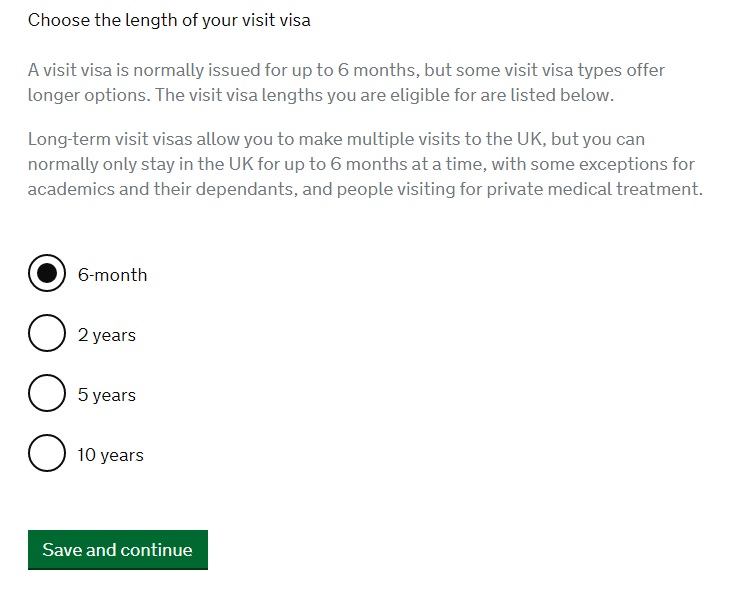
STEP 4: Create an appointment at a VFS Center (Manila or Cebu.)
STEP 5: You can upload your documents ahead (with the checklist and barcode separator ), to avoid paying a Document Scanning Assistance Fee of PHP 670 in VFS.
STEP 6: On your scheduled appointment, go to the VFS Center you selected. During your appointment, you will submit your documents, get your photo and fingerprints taken.
STEP 7: Wait for an e-mail about the update of your application
STEP 8: Pick-up at the VFS Center or receive your passport through a carrier.
How to Apply and Fill Up the Online UK Application Form
1. Go to this website .
2. Click Apply Now .
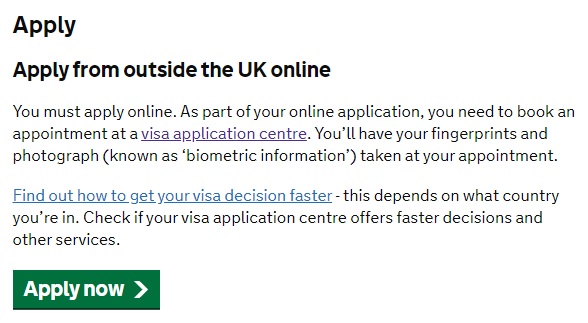
3. Select the language you want your questions and choices to be. Click Next .
4. Choose which country where you will be having your appointment or application.
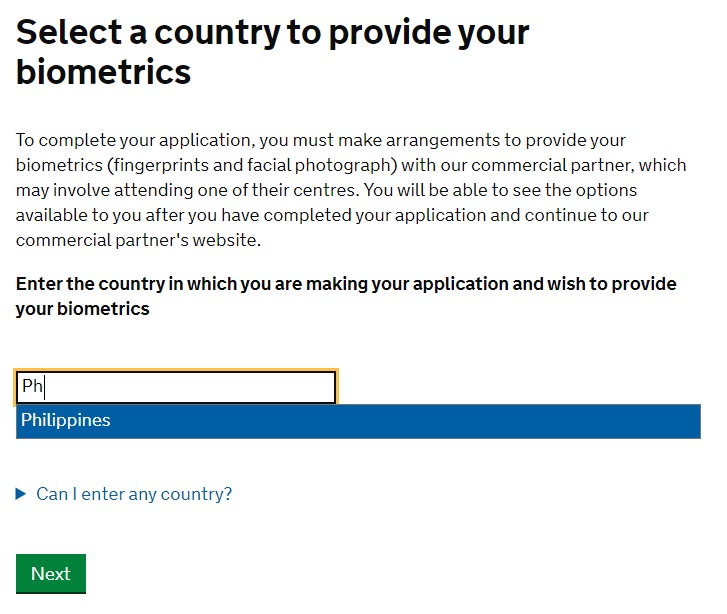
5. Select the 1 st option if you can go to Makati or Cebu.
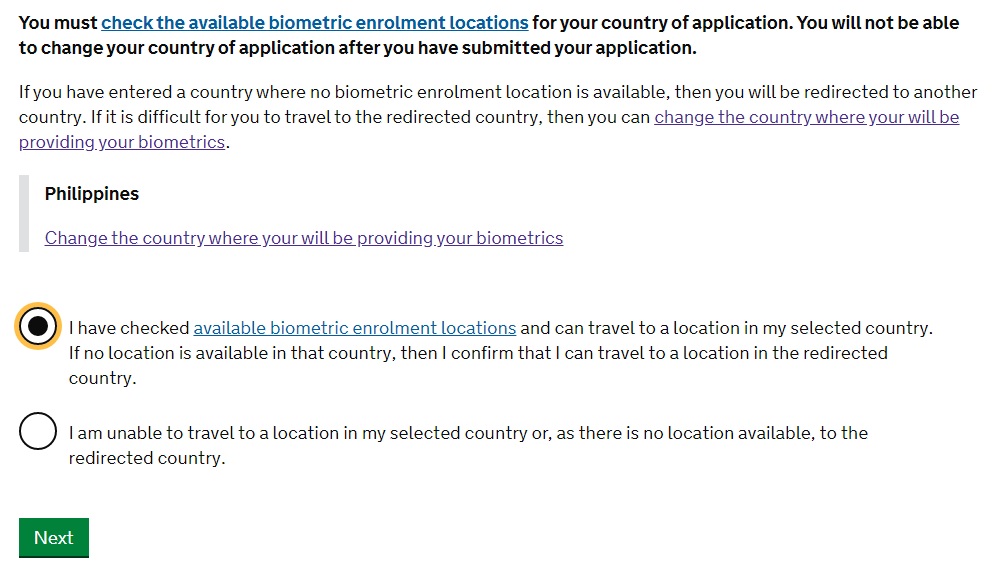
6. Start your application; please make sure to be active for at most 30 minutes, or you will be automatically logged out. Click Start Now .
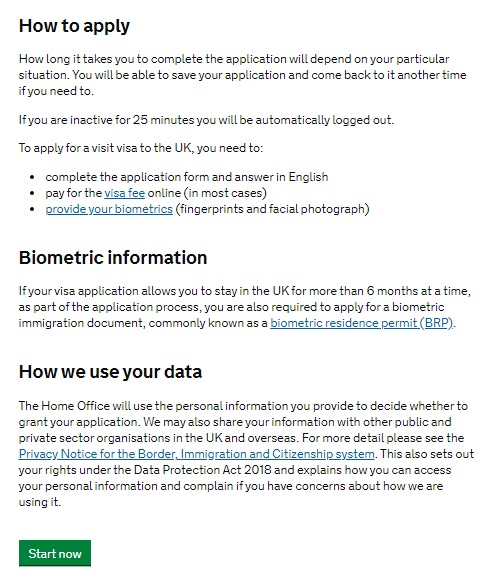
7. Register an e-mail and create your password. You can also retrieve your application through a unique link sent in your e-mail. Click Save and Continue .
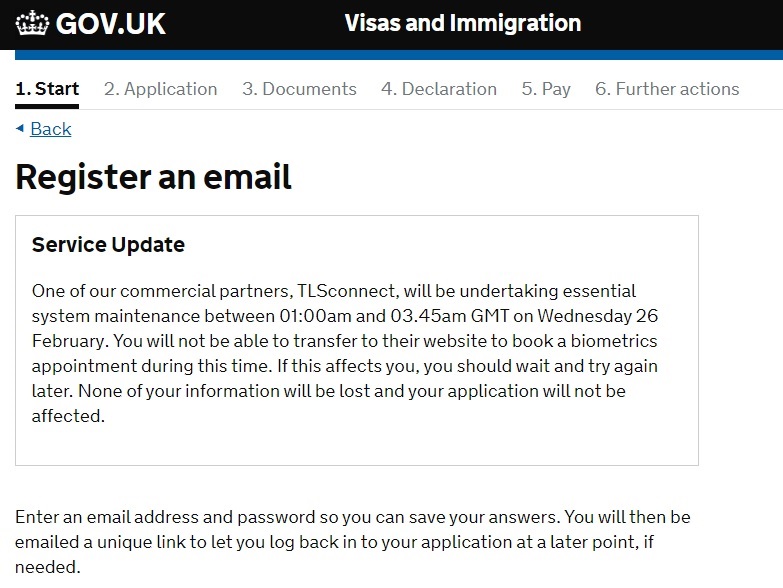
8. Answer the questions asked.
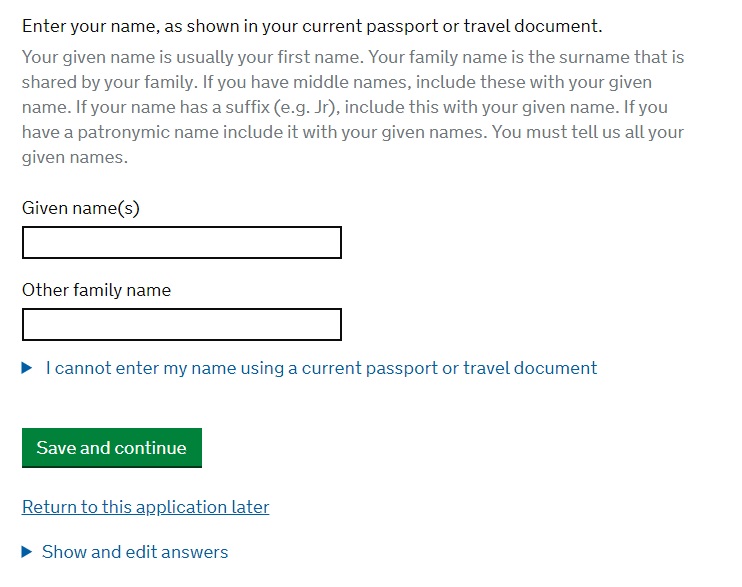
Information that may be asked:
- Telephone Number
- Relationship Status
- Address and length of stay
- Ownership Status of House
- Passport Details
- National Identity Card
- Nationality(s)
- Birth Place
- Employment – Start date, Employer’s name, address and contact details
- Job Title, Salary, and Description
- Income and Expenses – normal life and during your visit
- Planned Travel Dates
- Language Preferred
- Main Reason For Visit (with details)
- Dependent Details (if you are supporting someone)
- Parent’s Details – Complete Name, Birthdate, Nationality
- Family in the UK
- Travel Companions or Group
- Accommodation Details
- Travel History (UK and Other Countries – with dates of arrival and departure and purpose)
- Travel Refusal, Removal, Deportation, etc.
- Conviction and other penalties
- Previous Employment Organization
- Extra Information
9. Review your answers and click Continue.
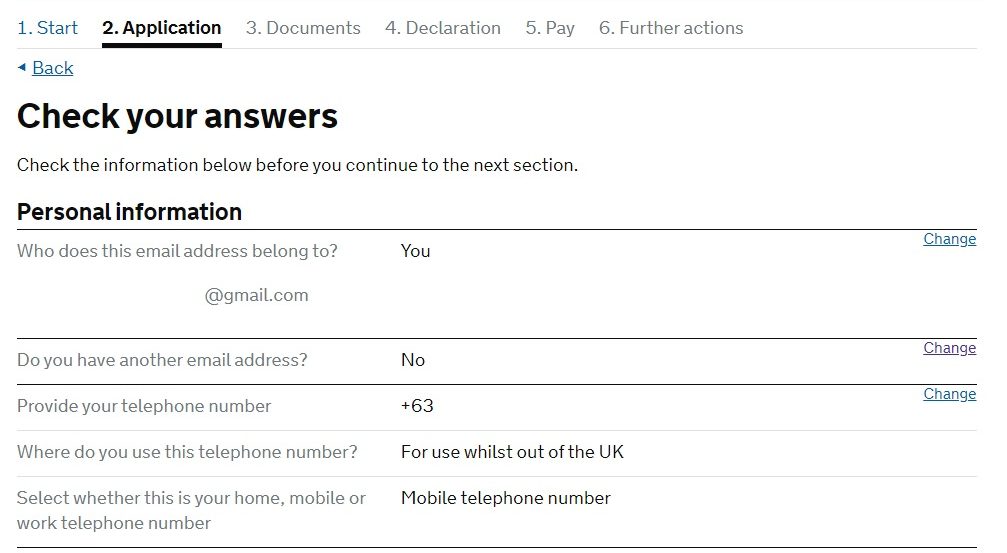
10. Check the documents you must provide and tick the box to continue.
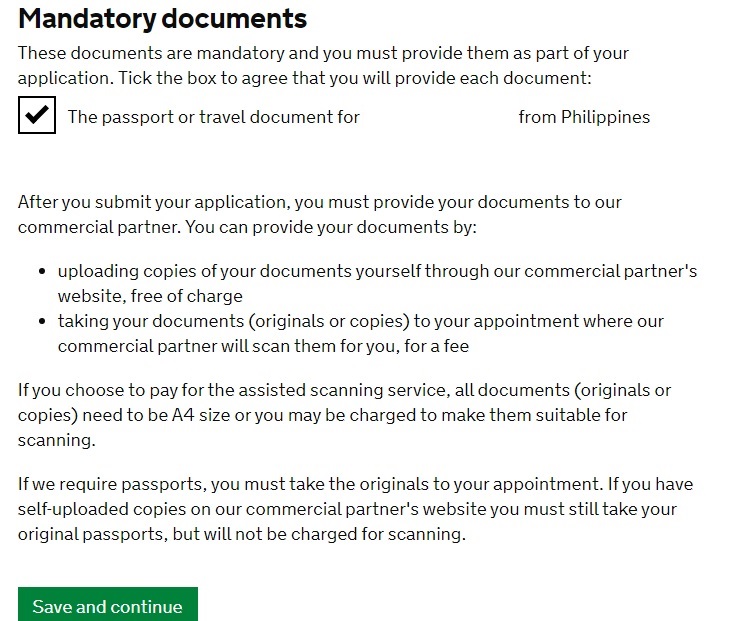
11. Read the declaration, tick the box, and continue. You’ll be on the visa fee list.
Know that you have read this UK Visit Visa Application Guide for Philippine Passport Holders, you can prepare your documents, apply online, wait for your appointment and visa. The process is pretty easy. If you need more assistance in getting a visa, we have a visa application bundle where we can do most process for you and you’ll just go to the center to get your photo and fingerprints taken. Good luck!

Are you on Pinterest? Pin these!
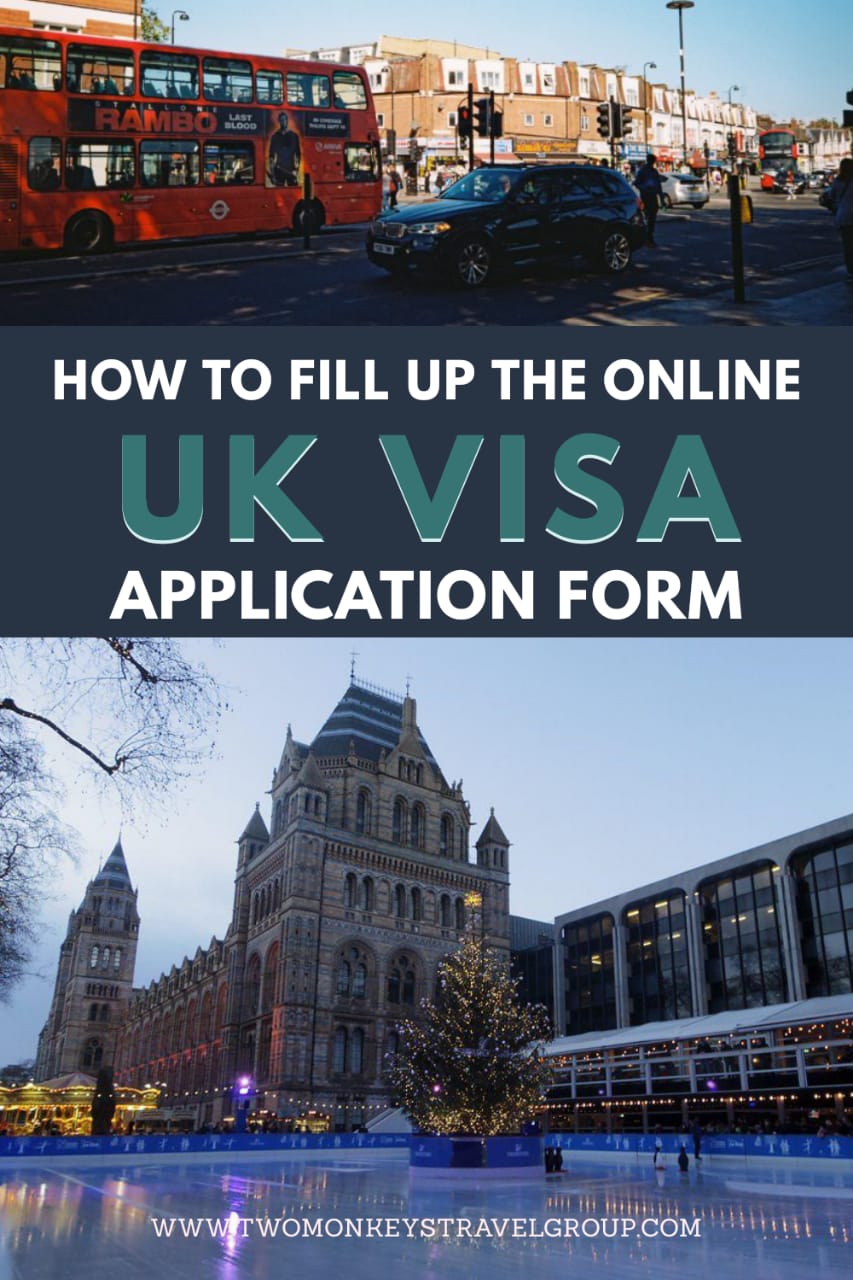
Leave a Reply Cancel reply
Your email address will not be published. Required fields are marked *
This site uses Akismet to reduce spam. Learn how your comment data is processed .
COPYRIGHT DISCLAIMER: Many of the articles on Two Monkeys Travel Group are guest posts by a number of Approved Contributors and are hosted by Two Monkeys Travel Group. Approved Contributors control their own work and post freely to our site. This includes all text and images that they use within their own work. All contributors are instructed to follow internationally recognised copyright and intellectual property guidelines. Two Monkeys Travel Group takes its own responsibilities very seriously, so if you feel that any part of this work is abusive in any way, please send us an email so that we can investigate - [email protected]
DISCLOSURE: Please note that some of the links above are affiliate links. So when you make a purchase we sometimes make a small commission, at no extra cost to you. The cost to you remains the same, sometimes even cheaper if we have negotiated a special deal for our readers.We use all of the companies we have listed here and that’s why they are in this list, but of course we need to keep Two Monkeys Travel Group running as well as it can, which is exactly what you’re helping with if you do decide to buy or book something through an affiliate link! If you have any more questions about the companies we use or any other companies you’re looking at, just email us and we’ll be happy to help. Please see our full disclaimer page for more information.
Written by Kach Umandap
Founder of Two Monkeys Travel Group. Since 2013, Kach has visited all the 7 continents (including Antarctica) and 151 countries using her Philippines Passport. In 2016, she bought a sailboat and went on sailing adventures with her two cats - Captain Ahab & Little Zissou in the Caribbean for 2 years. She now lives in Herceg Novi, Montenegro where she's enjoying her expat life and living on a gorgeous Stonehouse. She writes about her experiences traveling as a Filipina traveler with a PHL Passport. Also tips on backpacking trips, luxury hotel experiences, product reviews, sailing & adventure travel.
5 Reasons Why You Should Visit TeamLab Planets in Toyosu, Tokyo
Al hamra residence – my best stay in the uae, anavrin ras al khaimah – the perfect retreat for corporate junkies, where to stay in the gambia [best hotels and resorts in the gambia], 8 best things to do in the gambia, west africa, related posts, travel guide to cabalitian island, pangasinan, philippines with a diy itinerary, how to apply for a car loan in the philippines, comparison for income tax rates in the philippines – graduated it rates vs 8% it rate (with sample computations), 4 territories and countries filipinos can enter with a valid new zealand visa, previous post, how to apply for schengen hungary visa for filipinos [hungary schengen visa guide for filipinos], how to handle tourist visa overstays [covid-19 restrictions], subscribe to our newsletter.
Receive tips on how you can live a sustainable long-term travel lifestyle!
- First Name *
- Comments This field is for validation purposes and should be left unchanged.
Cookies on GOV.UK
We use some essential cookies to make this website work.
We’d like to set additional cookies to understand how you use GOV.UK, remember your settings and improve government services.
We also use cookies set by other sites to help us deliver content from their services.
You have accepted additional cookies. You can change your cookie settings at any time.
You have rejected additional cookies. You can change your cookie settings at any time.
- Crime, justice and law
- Courts, sentencing and tribunals
- Family court applications that involve children (CB1)
- HM Courts & Tribunals Service
Making an application: children and the family courts
Updated 29 April 2024

© Crown copyright 2024
This publication is licensed under the terms of the Open Government Licence v3.0 except where otherwise stated. To view this licence, visit nationalarchives.gov.uk/doc/open-government-licence/version/3 or write to the Information Policy Team, The National Archives, Kew, London TW9 4DU, or email: [email protected] .
Where we have identified any third party copyright information you will need to obtain permission from the copyright holders concerned.
This publication is available at https://www.gov.uk/government/publications/family-court-applications-that-involve-children-cb1/making-an-application-children-and-the-family-courts
Family dispute resolution
We know that long term conflict between separating parents is harmful to children’s wellbeing, both in the short and long term. Resolving your family arrangements outside of court can be a better experience for families than going through the family courts, because:
- you will have more control over what happens
- it is usually less stressful
- it can be cheaper
- it can be quicker and less upsetting for you and your children
Before submitting your application to court, you legally have to attend a Mediation Information and Assessment Meeting ( MIAM ) with an authorised family mediator.
The MIAM does not take long. The mediator will help you and the other person to try to reach an agreement on issues, such as:
- arrangements for children
- financial arrangements
- dividing up property without having to go to court
There are lots of options for non-court dispute resolution, such as:
- mediation arbitration
- evaluation by a neutral third party (such as a private financial dispute resolution process)
- collaborative law
Depending on your personal circumstances, you may need to pay for the meeting. Successful mediation can reduce costs for you in the long term. You can find out more about MIAM and how to arrange one .
You may be able to get help with the cost of mediation .
In some circumstances, such as where domestic abuse is involved, you may not need to attend a MIAM . If you think that you do not need to attend a MIAM , you can claim an exemption. You can find out more about the valid reasons not to attend a MIAM .
For some MIAM exemptions, you must give evidence to support your claim. Any evidence must be provided with your application. The court will review the evidence so that a MIAM exemption has been claimed correctly.
Parenting plans: putting children first – a guide for separating parents
‘Parenting Plans: Putting children first - a guide for separating parents’ is a free booklet designed to help parents reach agreement about arrangements for their children following separation or divorce.
You can download a copy of the parenting plan booklet , or you can get a copy from your local family court. You can get a Welsh version from any Cafcass Cymru office or any Welsh court.
The booklet looks at issues you may need to consider in making arrangements for your children, and includes practical examples of how other parents in a variety of family structures and circumstances have solved problems. It also provides a list of organisations that can give further advice and help.
The court makes most decisions about children using a law, called the Children Act 1989. If you want the court to make a decision about a child, you need to apply to the court for an ‘order’. An order will be made when either the judge, legal advisor or panel of magistrates makes a decision.
How the court can help you
Some of the orders you may want to apply for are described in this section. These are just some of the decisions a court can make under the Children Act 1989.
Child arrangements order
A child arrangements order decides the arrangements for whom a child is to live with, spend time with or otherwise have contact with and where a child is to live, spend time or otherwise have contact with any person.
For example, if your child lives with your ex-partner and you want to see your child at weekends, or you cannot agree which parent the child is to live with, you might want to apply for a child arrangements order.
Specific issue order
These orders give instructions about a specific issue that has arisen about an action normally done by a parent.
For example, if you and your ex-partner cannot agree which school to send your child to.
Prohibited steps order
These orders mean a person must have the court’s permission before doing something set out in the order that would normally be done by a parent.
For example, if a parent needs the court’s permission before taking the child to a foreign country.
Parental responsibility order
Parental responsibility means all the rights, duties, powers, responsibility and authority which by law a parent of a child has in relation to the child and his property.
For example, if you are the father of a child but you were not married to the child’s mother and were not named on the birth certificate when the child’s birth was registered, but you want to be recognised legally as the child’s father, you may apply for a parental responsibility order.
Financial provision
Child maintenance is regular, reliable financial support that helps towards a child’s everyday living costs.
Child maintenance can make a real difference to children’s lives and can help pay for things like clothing, food and other essentials.
Many parents choose to work together to set up a child maintenance arrangement. These family-based arrangements can include other things and do not have to be just about paying money. If an arrangement is not possible there are other options.
You can find out more about child maintenance options and how to set up an arrangement .
Appointment of a guardian
A guardian appointed under this section will generally take over parental responsibility for the child after the death of a parent.
For example, if your niece or nephew has lost both their parents you might apply to be a guardian.
Special guardianship
The special guardian of a child can take most decisions about the child until the child is aged 18 years. Unlike adoption, the child will keep their ties to their birth family.
You can find out more about special guardianship .
Order related to enforcement of a child arrangements order
If you were involved in proceedings where a child arrangements order was made, and the order is not being kept to, you might be able to apply to the court to have that order enforced.
Find out how to enforce a child arrangements order .
You can find out how to apply for child adoption .
You can find out more about adoption .
What a court might decide
A court will only make an order if it thinks that would be best for the child. Sometimes a court may decide that it would be best not to make any order.
A court might:
- make an order
- change an order (called varying the order)
- end an order (called discharging the order)
If the court makes an order it will be based on what is best for your child. This might mean that you, or the other person, will not get exactly what you have asked for.
Once a case has started a court may make other decisions. These include:
- giving instructions that people must follow (these are called ‘directions’)
- transferring a case to another court
You do not need to know the law to apply but if you want to read more about the law you need a copy of the:
- Children Act 1989
- Family Procedure Rules
The accompanying practice directions are available on the internet or from your local court, or they may be available at your local library.
Permission to apply
Some people have the right to apply for an order, and some people must first get the permission of the court to make an application.
You have the right to apply without getting permission from the court if you are one of the people listed in the who can apply section .
You may want to consider whether you need to have parental responsibility in order to make an application. You can read more in the parental responsibility section .
If you do not have the right to make an application you may still be able to apply, but you must first get the court’s permission. You can find out which form to use to get permission in the forms and guidance section .
If you are the child and the order you want to apply for is about you (for example, your contact with a parent), you must get the court’s permission before you apply for the following orders:
child arrangements order (including to vary or discharge an existing order)
specific issue order (including to vary or discharge an existing order)
prohibited steps order (including to vary or discharge an existing order)
discharge of the appointment of a guardian
- discharge of a parental responsibility order or agreement
Children and young people
If you are a young person in England whose family is changing, you can find out more about the Children and Family Court Advisory Support Service .
If you are a young person in Wales whose family is changing, you can find out more about the Welsh Children and Family Court Advisory Support Service .
The parties in a case
The parties to a case are those involved in the court proceedings and may include:
- everyone who has the right to apply for an order – see the who can apply section
- people with parental responsibility – see the parental responsibility section
- anyone who the court has made a ‘party’ to the case
If someone else has applied for an order you may not be a party to that case, but you may apply ‘to be joined as a party’ to it. To find out which form to use, see the forms and guidance section .
Who can apply
You can find out more about enforcing a child arrangements order .
You can find out more about applying for an adoption order
Find out more about how to apply for a special guardianship order .
An application to have an existing order changed is called an application to vary the order.
An application to have an existing order brought to an end is called an application to discharge the order.
The child’s mother
If you are the child’s mother you can apply for the following orders:
financial provision (including to vary or discharge an existing order)
discharge of a parental responsibility order
The child’s father or parent
If you are the child’s father or parent under section 42 or 43 of the Human Fertilisation and Embryology Act 2008 you can apply for the following orders:
- financial provision (including to vary or discharge an existing order
Also, if you are the child’s father or parent under section 42 or 43 of the Human Fertilisation and Embryology Act 2008 and you have parental responsibility, you can apply for either:
If you are the child’s father or parent under section 42 or 43 of the Human Fertilisation and Embryology Act 2008 and you do not have parental responsibility, you can apply for either:
- appointment of yourself as a guardian if the child has no parent with parental responsibility
- a parental responsibility order
The child’s step parent
You are a step-parent if you are not the child’s parent but are married to, or a civil partner of, a parent of the child who has parental responsibility for that child and you have treated the child as your child.
If you are the child’s step-parent you can apply for a child arrangements order (including to vary or discharge an existing order).
Also, if you are the child’s step-parent and you have parental responsibility, you can also apply for:
- a specific issue order (including to vary or discharge an existing order)
- a prohibited steps order (including to vary or discharge an existing order)
- discharge of a parental responsibility order, if it is your parental responsibility you want to discharge
- discharge of a parental responsibility order of an unmarried father
If you are the child’s step-parent and do not have parental responsibility you may also apply for:
- appointment of yourself as a guardian, if the child has no parent with parental responsibility
The child’s grandparent
If you are the child’s grandparent you can apply for an appointment of a guardian order.
The child’s guardian
If you have been appointed as the child’s guardian you can apply for the following orders:
People with a child arrangements order
If you have a child arrangements order that is in force you can apply for the following orders:
If you do not have the right to make an application you may still be able to apply, but you must first get the court’s permission.
Other people
If you are not a parent or guardian you may still be able to apply for an order.
If you have an interest in the child’s welfare you can applying for an appointment of a guardian order.
If the child has been living with you for at least 3 years during the last 5 years and within the last 3 months you can apply for a child arrangements order (including to vary or discharge an existing order).
If the local authority caring for the child has agreed that you may apply for an order, you can apply for a child arrangements order (including to vary or discharge an existing order).
If you are married or in a civil partnership, or have been married or in a civil partnership and the child is or was regarded as a child of the family, you can apply for a child arrangements order (including to vary or discharge an existing order).
If you have the permission of everyone who has parental responsibility for the child and there is no child arrangements order in force and the child is not in the care of the local authority, you can apply for a child arrangements order (including to vary or discharge an existing order).
If you have the permission of everyone who has a child arrangements order for the child, you can apply for a child arrangements order (including to vary or discharge an existing order).
Parental responsibility
If you have parental responsibility you have all the duties, rights and authority which, by law, a mother or father has for their child. This is described in full in the Children Act 1989.
A child’s mother always has parental responsibility for the child. However, sometimes a child’s father or other parent does not have parental responsibility.
You have parental responsibility if you have, since 1 September 2009, been registered as the child’s parent under section 10A(1B) of the Births and Deaths Registration Act 1953.
The following will help you decide if you have parental responsibility. It shows that sometimes a person who is not a parent may have parental responsibility.
You have parental responsibility if any of the following applies:
- you are the child’s mother
- you are the child’s father and you were married to the child’s mother when the child was born
- you are the child’s parent under section 42 of the Human Fertilisation and Embryology Act 2008 as you were the mother’s civil partner, or married to the mother, when the child was born
- you are the child’s step-parent (married to or a civil partner of a parent with parental responsibility) and you have made a parental responsibility agreement with the child’s mother (and father if he also has parental responsibility) or you have a parental responsibility order
- you hold a child arrangements order for the child
- you hold an emergency protection order for the child
- you are the child’s guardian
- you have adopted the child
- you are the child’s special guardian
- you are the child’s father and you were not married to the child’s mother when the child was born but you now have a parental responsibility order, or any of the following applies
- you have made a parental responsibility agreement with the child’s mother
- you have since married or entered into a civil partnership with the child’s mother
- you are the child’s parent under section 43 of the Human Fertilisation and Embryology Act 2008 and you have since entered into a civil partnership or marriage with the child’s mother
- you have, since 1 December 2003, been registered as the child’s father under paragraphs (a), (b) or (c) of sections 10(1) or 10A of the Births and Deaths Registration Act 1953 or the corresponding law in Scotland or Northern Ireland
- you are the child’s parent under section 43 of the Human Fertilisation and Embryology Act 2008 and you have, since 1 September 2009, been registered as the child’s parent under paragraphs (a), (b) or (c) of section 10A (1B) of the Birth and Deaths Registration Act 1953
If you or the child (or both of you) has links with Scotland or Northern Ireland you should contact the authorities there for more information on parental rights.
If none of the above applies but you or the child (or both of you) has links to a country outside the UK you may have parental responsibility rights in that country. You should contact the authorities for the relevant country to find out if this affects you.
Parental responsibility agreement
A parental responsibility agreement is a legal document in which a child’s mother and father agree that the father has parental responsibility for the child, or in which a child’s mother and father (if he already has parental responsibility) agree that the child’s step-parent has parental responsibility for the child. A step-parent is someone who is not a parent but is married to or the civil partner of one of the parents with parental responsibility.
You must make a parental responsibility agreement on form C (PRA1) for a father, form C (PRA2) for a step-parent or form C (PRA3) for a second female parent under section 42A of the Children Act 1989. Each of these forms comes with notes that will tell you more about how to make a parental responsibility agreement.
You can find the forms you need to complete , or collect them from any family court office.
Forms and guidance
You can access all forms online , or you can get them from a family court office.
If you are applying for an order related to enforcing an existing child arrangements order, you can find out more about enforcing a child arrangements order .
If you are applying for a special guardianship order, you can find out more about special guardianship .
You must complete form C100 if you are applying for a:
- child arrangements order
- prohibited steps order
- specific issue order
You must complete form C1 if you are applying for a:
- appointment of a guardian order
- discharge of appointment of a guardian order
- parental responsibility order (section 4)
- step-parental responsibility order (section 4A)
- discharge of a parental or step-parental responsibility order
You must complete form C2 if you are applying:
- for an order in existing proceedings
- to be joined as a party in existing proceedings (for example if you have received a C6A notice of proceedings)
If you would like to apply for an order that has not been mentioned, you may want to get advice from a solicitor or citizens advice.
Tell the respondents and other people about your application
Later, depending on the application form you need to use, you will have to tell people that you have made an application. These people are referred to as the respondents. These might include:
- the child’s parents
- someone who is looking after the child
- other people named on the application
Telling people about your application and providing a copy of your application form to the respondents is called ‘service’.
If you are making a form C100 application the court will give the respondents a copy of your application form. However, if you are making an application on form C1 or C2, you will need to give the respondents a copy of your application form and other documents provided by the court. This will give them the opportunity to send in their own form in response to your application.
If you are applying for more than one order you may have different respondents or other people you have to tell for each order using form C1 or C2.
If a respondent is aged 18 and under and does not have a solicitor, you need the court’s permission to tell them about your application.
Sometimes there will be no one for you to tell about your application. Regardless of the application form you use, a person named as an ‘other party’ must be told about your application but you do not need to give them a copy of the application form.
When to tell people about your application
The court will tell you later when and how to tell the respondents (if you have made an application using form C1 or C2) and other people (whichever application form you have used).
Telling people about your application and providing a copy of your application form to the respondents is called ‘service’. You can find out how to serve court forms .
Who the respondents are
In any application, if the child is the subject of a care order the respondents will include every person you believe to have had parental responsibility immediately before the care order was made.
The respondents are everyone you believe has parental responsibility for the child if you apply for:
- a child arrangements order
- a specific issue order
- a prohibited steps order
- the appointment of a guardian
The respondents are everyone you believe has parental responsibility for the child, and the parties in the application for the order to be varied or discharged if you apply to vary or discharge a:
If you apply to vary or discharge an order for financial provision, the respondents are:
- everyone you believe has parental responsibility for the child
- the parties in the application for financial provision
If you apply to vary or discharge a parental responsibility order, the respondents are:
- the parties in the application for the parental responsibility order
The other people you must tell
If you apply for, or apply to vary or discharge a child arrangements order, specific order or prohibited steps order you must tell:
- the social services department of the local authority if the child is in local authority accommodation – this might be a children’s home or with foster carers who could be related to the child
- everyone who is caring for the child
- the person who provides the home in which the child is staying if the home is a registered children’s home or a voluntary home, and it is a refuge
- everyone who you believe is named in a court order that concerns the child and is in force (unless you believe that order is not relevant to your application), and everyone you think applies to your application
- every person you believe to be a party in court proceedings which are taking place now, unless you believe those proceedings are not relevant to your application
If you apply for a parental responsibility order, the other people you must tell are:
- the social services department of the local authority, if the child is in local authority accommodation
- the person who provides the home if the child is staying in a home that is a registered children’s home or a voluntary home, and it is a refuge
If you apply for the appointment of a guardian, the other people you must tell are:
- the social services department of the local authority if the child is in local authority accommodation
- the child’s father if he does not have parental responsibility for the child
If you apply for financial provision, the other people you must tell are:
If you apply to vary or discharge an order for financial provision, the other people you must tell are:
If you apply to vary or discharge a guardian, the other people you must tell are:
If you apply to vary or discharge a parental responsibility order, the other people you must tell are:
The information you must provide
Completing form c100.
It is very important that you fill in form C100 carefully. You must provide full details about yourself and the respondents or your case will be delayed while we ask for the information. Cafcass and Cafcass Cymru need this information to help protect the welfare of the children. Both applicants (if there is more than one) have to sign the application form.
Address (including keeping your address secret)
We need your address to contact you. We will also give your address to other parties (the other people involved) so that they can give you a copy of their response to your application.
If you do not want someone to know your (or the child’s) address, phone number or email address, you do not have to put it on the application form. However, you will still have to give your contact details to the court, and there is a special form for you to do this. You should complete form C8 with your application. You can also get a copy of form C8 from any family court office.
Who the child lives with
You must tell us about any other people who live with the child, for example, new partners of a parent, aunts, uncles, and grandparents.
You must also tell the court if the child lives at more than one address. This will help give the court a complete picture of the child’s living arrangements.
Social services
We also need to know if the child is the subject of a child protection plan or known to local authority children’s services (you may know this as social services). The court may decide to ask for further information or advice from the local authority.
Cafcass and Cafcass Cymru
Cafcass and Cafcass Cymru look after the interests of children involved in family proceedings. They work with children and their families, and then advise the court on what they consider to be in the best interests of the child.
Cafcass and Cafcass Cymru are responsible for protecting and promoting the welfare of children who are the subject of family court cases. They do this by working with the children and families and by providing advice to the courts.
They also carry out checks with other organisations, in particular local authorities and the police, as part of their work to make sure that children are safe, and report their findings to the court.
Oral and written evidence
There are two kinds of evidence you may use to support your case, which are:
- oral evidence
- written (or documentary) evidence
Oral evidence
At the court hearing you may want to tell the court something or you may want someone else to go to court as a witness and tell the court something to support your case. What you or your witness say is called ‘oral evidence’.
However, the court may not allow you or your witness to speak to the court unless you first give the court office a written statement of what you or your witness will say. Any statement (including a schedule) must state clearly your name, your address (unless the court has said you do not have to give it and the date. At the end you must state “The contents of this statement are true” and sign it.
If you have documents or photographs that show what happened you should attach them. The court does not make its own enquiries or gather evidence for you.
When you make a statement about what is in the children’s interests, you might find it useful to use the witness statement template .
If you are asking the court to deal with allegations of abuse a schedule (table) of incidents can be helpful. Complete it and email it to the other party who can then use the same schedule to reply. The completed schedule can then be sent to the court.
An example of a schedule would be:
The person making the allegation should fill in these parts. The person replying should fill in this part. Number and date. Briefly, what do you say happened and where? Give more detail in your statement, who else was there? If the incident was reported, give details. Briefly, what do you say happened? Give more detail in your statement. 1 [date] [insert] [name] [insert] [insert] 2 [etc.]
You must send a copy of your statement to the other parties and file a copy at court.
Copies of court orders
Some parts of the forms ask you to provide copies of court orders. You can get a copy of an order from the court which made it. Ask the family court office for a certified copy. You may have to pay a fee.
Written evidence
You must get the court’s permission before you ask an expert to prepare a report to use in the proceedings.
If you want a report made on the child you must have the court’s permission before you ask someone to assess or examine the child.
You must write to the court with your request before the first hearing dispute resolution appointment and the court will normally expect you to be ready to discuss this.
If you apply for a child arrangements order, specific issue order or prohibited steps order you must fill in the form and give only the information it asks for.
If you are also filling in a supplemental information form (form C1A), again give only the information it asks for. There are notes for guidance on filling in form C1A. You can get these from the court office.
You must have the court’s permission if you want to:
- refer the court to written information
- give information which a form does not ask for
If you apply for an order which is not a child arrangements order, specific issue or prohibited steps order, you may refer to written evidence on your forms but you must provide the family court office with copies of the evidence.
Fees and costs
You may have to pay a court fee to apply for an order.
If you have to ask the court for permission to apply for an order you will have to pay a fee. This fee is not refundable. If the court gives you permission you will not have to pay another fee when applying for the order.
There may be other costs (for instance, you may have to pay expenses to a witness who goes to court to give evidence for you) but that depends on your case and what you decide to do.
You can find out more about fees .
Methods of payment
Courts accept payment by debit or credit cards, cash, postal orders or cheques, which you should make payable to HM Courts and Tribunals Service.
If you pay by cheque and it bounces, the court will take steps to recover the money. If you do not pay a court fee your case may be stayed (suspended) or even struck out. If your case is struck out it will be permanently removed from the court and you would need to apply again.
If you cannot afford to pay a court fee
If you cannot afford to pay a court fee, you may be eligible for a reduced fee or you may not have to pay. Find out how to apply for help with court and tribunal fees .
Which court to apply to
You should normally make your application to your child’s nearest family court. You can find your child’s nearest family court .
The court you apply to will usually deal with your case. However, sometimes a court may decide a case should be dealt with by another court and will transfer it there.
Attending court and special arrangements
If you need special arrangements.
If you need special help or facilities, for example because of a disability, please set out your requirements in full on your application form.
The court staff will need to know what you will need, for example, documents in alternative formats such as braille or large print, certain access, a hearing loop or a sign-language interpreter. The court staff will get in touch with you about this. If you do not make the court aware of all your needs, your hearing may be adjourned (postponed).
If you need a foreign language interpreter you should also contact the court immediately so that court staff can arrange one for you.
Bringing children with you to court
Children should not generally come to court unless they are part of the court process, for example if they are a witness, or if you have an appointment for you and your child to meet with the judge.
If you have to bring your child for any other reason, please bring an adult friend or family member to look after them while you are in the hearing room, as court staff cannot look after your child.
If for any reason you are worried about security at court please let the court staff know as soon as possible. They will consider your needs and how they can help you.
What to after you have filled out the form
Check the form.
You must make sure that you have:
- said everything that you want to say
- provided evidence if evidence is needed to support a MIAM extension claim – evidence does not need to be sent to the other party
Once you have submitted the forms to the family court you must have the court’s permission if you want to change anything on the forms.
Copy the forms
Make a copy of each form for:
- Cafcass or Cafcass Cymru
- each respondent whose name you have provided in your application (you only need to do this if you have made your application using form C1 or C2)
Make the same number of copies of any other papers which you will give to the court with your forms. These papers may include:
- a court order
- the supplement information form (form C1A)
- written evidence to support your application
Your total papers given to the court must include the original and 2 copies and a copy for you.
Make sure any extra sheets you may have used include the child’s or children’s names and the section number of the C1 or C100 you are answering.
Then you must take or send the forms and copies to the family court with the correct fee. This is called ‘lodging’ or ‘filing’ your application.
In an emergency the court may allow you to make an application without telling the other parties. This type of application is called ‘without notice’ or may be referred to as ‘ex-parte’ at court.
If the court then makes an order you may have to provide a copy of the order to anyone who will be affected by it. Tell the family court office if you want the court to deal with your application ‘without notice’.
You can find out more about urgent court hearings about child arrangements .
What the court will do next
How the court will deal with your case.
This depends on many things and the court is unlikely to deal with your case on one occasion (the ‘hearing’).
The family court will check you have:
- filled in the forms correctly
- included any relevant papers
If you have not attended a MIAM before applying, the court cannot process your application (unless there are special circumstances).
The court may decide to not process your application until you have attended a MIAM to discuss different non-court dispute resolution options if:
- you were asked to provide evidence to support a MIAM exemption and you did not provide it with your form
- the court decides that a MIAM exemption was not claimed correctly
A judge may also pause proceedings at any time if they think that attempting to resolve the dispute outside of court is safe and appropriate.
If your case is approved to progress to court, the court will give you a date and time for the court to first consider (hear) your case. This is usually called a directions hearing, or a first hearing dispute resolution appointment.
The date of the directions hearing must give you enough time to let certain people know you have applied for an order and give them time to reply.
The first hearing dispute resolution appointment will usually take place around 5 weeks after it is received by the court. If the application is a C100 the court will send you and the respondent a copy of the application and a notice of hearing. For other types of application the court will return the application to you and you will need to serve the respondents.
The law says there must not be any unnecessary delay in a case which concerns a child, and at the directions hearing the court will decide a timetable for your case.
You should make a note of the case number, which the court office has put on the forms. You will need that number if you write to, or phone, the court office.
Once you have taken steps to start a court case, the law places restrictions on the information about the case that you can then share with other people.
You can find out about sharing information outside of court in family proceedings .
If the child needs help urgently
If you think the child needs help at once, and the court agrees, it can give directions (instructions) or make a temporary order.
If you do not want the case to continue
When you have given your forms to the court, you may apply for permission to withdraw your case but only the court can decide what to do.
Telling the respondents and other people about your application
After the court office has issued your application and sent you the documents listed in the previous section, you must then, if you have made an application using form C1 or C2, tell the respondents and, regardless of which application form you used, anyone else you have to tell about your application. This is called ‘service’. You must by law serve all these people unless the court has told you not to.
When the court sends you the copies of your application form, and any new forms, it will also send you a copy of Children Act 1989: how to serve court forms (CB3) . This will give detailed instructions about what you must do.
You may ask a court official for information but court staff are not allowed to advise you about what to do in your case. You may be able to get free legal advice. You can find out more about legal aid .
Get advise about your case
A court official can give you information about court procedures but cannot give legal advice. You can get advice from:
a solicitor − you can get the names and addresses of solicitors who specialise in Children Act work from the Law Society’s children panel (020 7242 1222), or yellow pages or the solicitors’ regional directory (you can find these at a public library)
- Citizens Advice
- a legal advice centre or a law centre
- the Law Society
You may have asked a solicitor for some advice. However, the solicitor is only acting for you if you have appointed them to do so.
Apply on your own
If you decide to apply on your own, you may want to get legal advice about the order you want the court to make. A court order may affect your life, or the child’s life, in ways you may not have thought about.
Find out more about affordable advice from a family solicitor .
You can find out more about separation, divorce and dissolution of civil partnerships .
People aged 18 and under
If any of the people (for example the parents of the child) involved in the case are aged 18 and under, an adult must handle the court proceedings on their behalf as well as any legal representation. This adult is called a litigation friend.
A litigation friend must be able to handle proceedings on behalf of the person aged 18 and under and must not have interests in the case that do not agree with the child’s interests. Any steps and decisions taken by the litigation friend in the proceedings must be made for the benefit of the child. A person can become a litigation friend as a result of the court making an order appointing them, or by filling in a certificate of suitability in form FP9 and filing it at the court.
Help from a layperson (sometimes called a Mckenzie friend)
If you decide to apply on your own without legal representation, a layperson or friend, sometimes called a McKenzie friend, may be able to help you in court. That person might:
- provide moral support
- help with case papers
- quietly give advice on points of law or procedure, issues that you want to raise in court, and questions you may want to ask witnesses
A McKenzie friend has no right to:
- act on your behalf
- speak to the court
- examine witnesses
- sign the court documents
You must tell the court at the start of the hearing if you want to have a layperson or McKenzie friend present.
If you do not apply on your own
You may be able to get help from the Legal Help Scheme. A solicitor, a law centre or a legal advice centre will be able to tell you whether you are eligible for legal help. You must apply for legal help through a solicitor.
Preparing and using bundles in private law cases
Why a bundle of documents is important.
It is very important at court hearings that everybody has a bundle containing the documents that are needed to deal with the issues the court has to decide.
It is also important that each bundle contains only the documents relevant at that hearing, in the same order and with the same page numbers. Otherwise time is wasted while parties and witnesses find documents that are being referred to. You can find out how to prepare a bundle .
Who should prepare the bundle
Normally the applicant prepares the court bundle. If the applicant is not represented by lawyers but another party is, that party’s lawyers will prepare the bundle. If nobody is represented by lawyers the court will decide who should prepare the bundle.
Contents of the bundle
Get together into a ring binder or lever arch file the documents that are relevant to the issues the court has to decide at that hearing. You should agree these with the other party. Send them a list of the documents you suggest should be included (an index). If you cannot agree, ask the court whether a document should go into the bundle or not.
Do not include correspondence, medical or financial records, notes of contact visits, social services files or police disclosure. If you think one of these types of document are relevant and should go in the bundle you should ask the court for permission to include it. You will need to explain why you think it is relevant.
The bundle should be divided into sections A to E.
A – preliminary documents
The preliminary documents must include:
- an up-to-date summary of the background confined to the matters relevant for that hearing and the management of the case (called a case summary) – this should not be longer than 4 pages
- a statement of the issues to be decided at this hearing and at the final hearing (you should agree this with the other party)
- a position statement by each party setting out what they say should happen and the orders they would like made at this hearing and at the final hearing
- an up-to-date chronology (setting out relevant events in date order)
- any written submissions to the court about the issues to be decided at the hearing – all these documents should be cross-referenced to pages in the bundle
- a list of the documents you and any other party think the judge really needs to read before this hearing
- how long you think the hearing should last (the court probably will not expect this from you as a litigant in person)
B – applications and orders
Applications and orders are any applications made to the court and order.
C – statements and affidavits
This must only include the statements and affidavits that are relevant to the issues to be decided at the hearing.
D – experts’ reports
Include any experts’ reports if there are any.
E – any other documents
You must complete a statement of position on non-court dispute resolution: form FM5 . The form must be sent to the court and the other party at least 7 working days before your first hearing or appointment.
If the court has asked for any other documents, or there are documents that you agree are relevant for the hearing, these must be included.
How to format your bundle
Each page in the bundle must be numbered in the bottom right hand corner. So the preliminary documents will start at A1, A2 and so on. The applications and orders section will start with B1, B2 and so on.
Try to cross-reference the preliminary documents with the pages in the bundle. For example, if the case summary mentions something dealt with in a statement at page C28, insert in the case summary at that point (C28).
The bundle should not exceed 350 pages. Ask permission from the court before exceeding this limit.
Print on one side of the page only.
Once you have completed the bundle make an index of each of the documents and their pages numbers. That goes at the start of the bundle, before everything else.
Make sure the outside of the bundle is clearly labelled with the name and number of the case, where it is to be heard, the hearing date and time (and the name of the judge if you know).
What to do with the bundle
First, send a copy of the index to any other party. They may ask for a copy of the complete bundle. If so, you should provide a copy, although they should pay any reasonable copying charges that you incur.
Next, make sure you deliver the bundle to arrive at the court no later than 2 working days before the hearing. If anybody is going to give evidence at the hearing, deliver 2 bundles - one for the judge and one for the witnesses.
If the hearing is before magistrates you will need to deliver 4 copies of the bundle (plus an extra one for any witnesses).
If the preliminary documents are not ready, deliver the bundle to the court anyway. Make sure any preliminary documents are delivered to the court by 11:00am on the working day before the hearing at the latest.
Make sure you bring your bundle to the court for the hearing.
Is this page useful?
- Yes this page is useful
- No this page is not useful
Help us improve GOV.UK
Don’t include personal or financial information like your National Insurance number or credit card details.
To help us improve GOV.UK, we’d like to know more about your visit today. We’ll send you a link to a feedback form. It will take only 2 minutes to fill in. Don’t worry we won’t send you spam or share your email address with anyone.

IMAGES
VIDEO
COMMENTS
Learn how to apply for a family visa to live with your partner, child, parent or relative in the UK for more than 6 months. Find out the eligibility, fees, costs, documents and decision times for different types of family visas.
Apply for a Standard Visitor visa to visit the UK for up to 6 months. For example: for a holiday or to see family and friends. for a business trip or meeting. to do a short course of study. You ...
16 June 2023. Removed the documents relating to North Korean nationals and their dependents as these forms are no longer in use. 17 July 2022. New SET(GT) form on settling in the UK as a Grenfell ...
How to apply for a UK family visitor visa. To apply for a UK family visitor visa, you need to complete the following steps: Complete and submit the online application form 2. Pay the application fee (see below) Book and attend an appointment at your nearest UK visa application centre (VAC) to provide your biometrics (fingerprint scan and photo ...
You can apply for a visa up to 3 months You can apply for a visit visa if you are: before your date of travel to the UK and should get a decision on your visa. • travelling to the UK to undertake within 15 working days. To find out how any of the permitted activities in long getting a visa might take in the Appendices 3, 4 or 5 to Appendix V ...
Getting a visa for a friend or family member to visit you in the UK for less than 6 months ... Your partner can't use a standard visitor visa to come to the UK to get married or register a civil partnership. ... After you fill in the form, the visitor will need to have their fingerprints and photograph taken at a visa application centre.
The UK Visa Application Centre is operated by Teleperformance, a commercial company working on behalf of UK Visas and Immigration. Your visa application will be processed and decided by UK Visas and Immigration staff. The British Embassy or Teleperformance play no part in and have no influence over the visa decision making process. Go to Visa4UK.
collect the required documents for a UK visa application. schedule a UK visa appointment. attend the UK visa interview. UK family visit visa fees. the cost of joining your partner, parent, or child is GBP 1,538 if applying outside the UK and GBP 1,048 if applying in the UK.
Family Visit Visa. If you are a non-EEA national and you want to travel to the UK to visit family, you will need a Standard Visitor Visa under the Family Visit Visa category. This visa is valid for up to six months. Family Visas under the Standard Visitor Visa category have very strict requirements and are therefore difficult to obtain.
Comprehensive list of required documents: To apply for a UK Family Visitor Visa, you will typically need to submit the following documents: Valid Passport or Travel Document: Must have at least one blank page for the visa stamp. UK Visa Application Form: Fully completed and signed.
As you are the person that your friend or relative is coming to visit, this letter must come from you and not from UCL. Please see the attached letter as an example of what to include. a copy of the biometric (main page of your passport) and a copy of your visa. a certificate of student status, confirming your studies at UCL.
The cost of your visa will depend on how long it's valid for. As at July 2019, the fees can range from anything between £95 for a standard six month short-term Family Visitor Visa UK, up to £822 for a 10 year long-term visit visa. As previously indicated, you should get a decision within about three weeks of your appointment date, although ...
UK Family Visa. Family members of British citizens and settled persons are eligible to visit or remain in the UK. Children (under the age of 18) of British citizens, settled persons, and persons who have been given permission to settle in the UK are eligible for a visa. They may apply for a temporary visa using application form VAF4.
For example, if you're applying for a family visit UK visa, you may need to provide proof of your relationship to the family member you're visiting. How to Apply for a UK Visitor Visa. Applying for a UK visitor visa involves several steps: Complete the online application form on the UK government's official website. Pay the visa fee. The ...
To apply for UK visa you must go through these simple steps: Find out if you need a UK visa. Chose the right UK visa type. Complete the online application form. Collect the required documents for a UK visa application. Schedule a UK visa appointment. Attend the UK visa interview.
Currently, the UK visitor visa costs £100 for the standard 6 month stay. If you are travelling for medical reasons, the cost is £200 for six months, or £200 for academic visitors. Longer-term visit visas cost £376 for the 2-year visit visa, £670 for the 5-year visit visa or £837 for the 10-year visit visa.
Visa fees for parents' visitor visa. A standard visitor visa costs £95. The fee for a long-term Standard Visitor visa depends on its length: 2 years - £361. 5 years - £655. 10 years - £822. There are also other costs associated with the services that you can buy from your local visa application centre.
This includes maiden name, name at birth, etc. Specify your legal sex, as stated on your passport, at the time of your application. Type of travel document. Specify the type of your passport. Options will look like this: Ordinary passport, diplomatic passport, service passport, official passport, special passport, other travel document.
Step by Step Guide on How to apply for a UK Visit Visa. STEP 1: Have your documents ready. Please scan them or take a clear picture of them before the start of the process. The files must be in JPEG, PNG, or PDF File. STEP 2: Complete the Online Application Form (Please see below for more detailed instructions.)
Travel document (passport) You must provide a valid passport or other travel document with all applications and when travelling to the UK. Your passport must have at least 1 page blank if you use ...
Other people. If you are not a parent or guardian you may still be able to apply for an order. If you have an interest in the child's welfare you can applying for an appointment of a guardian order.